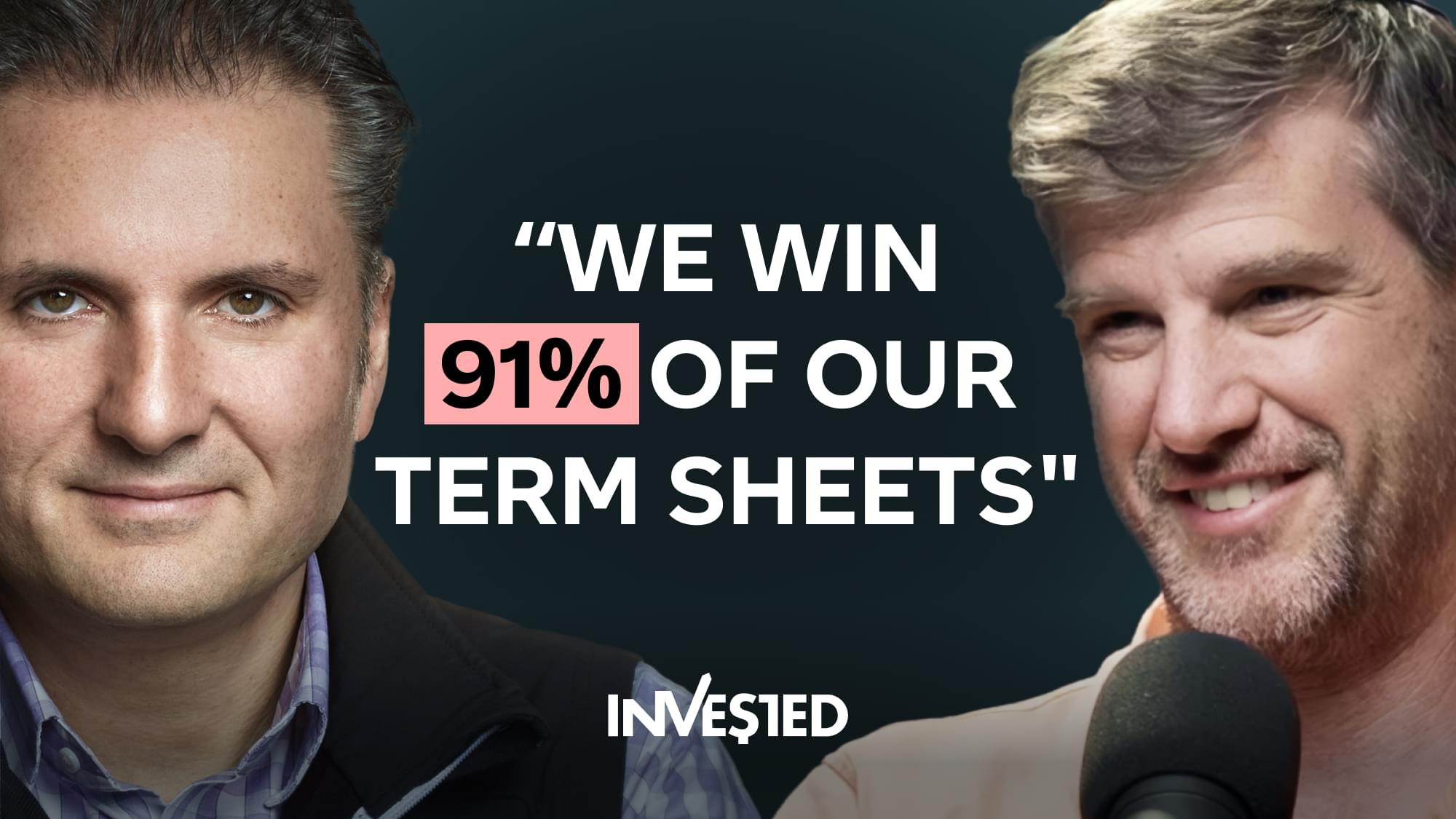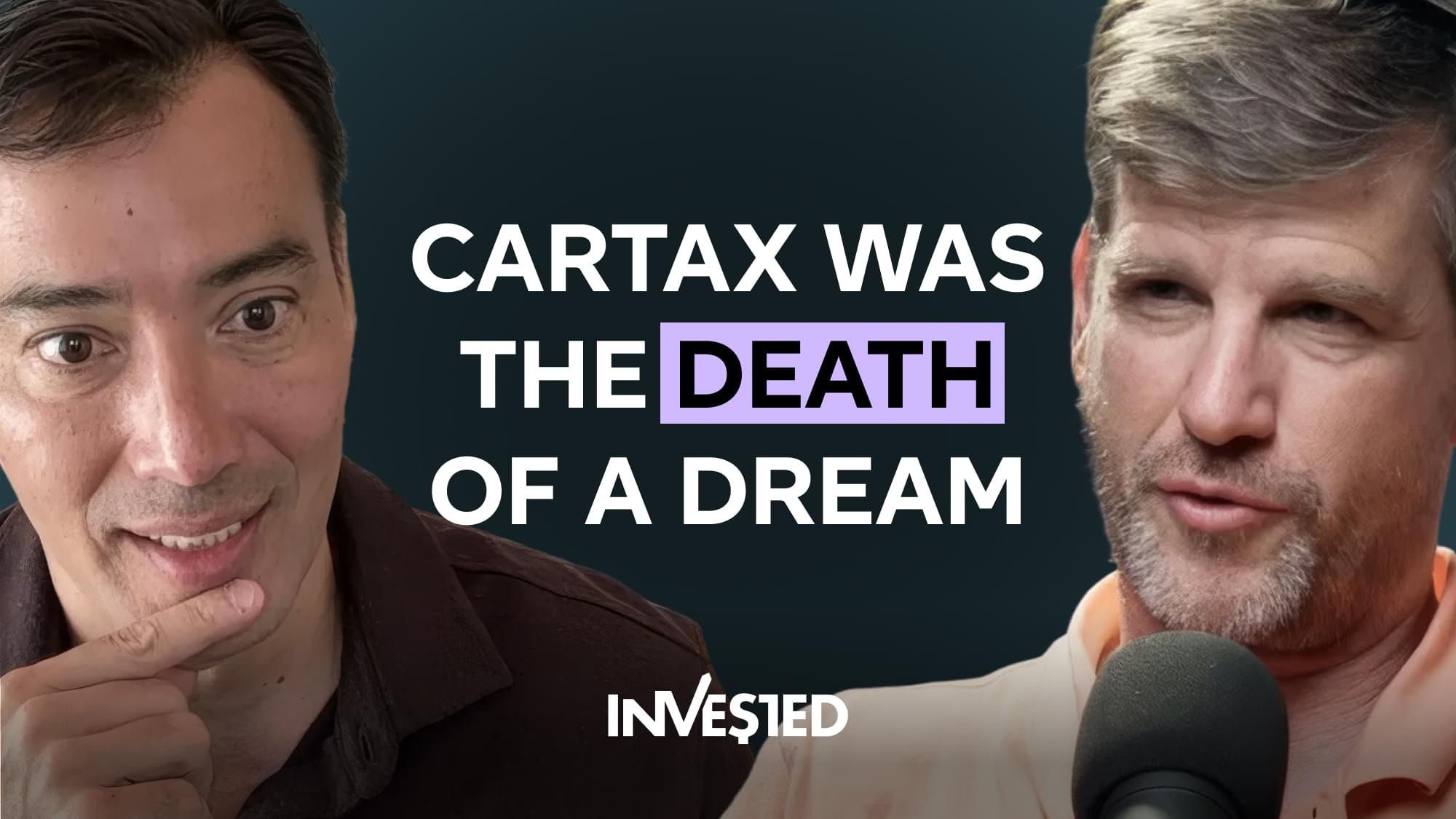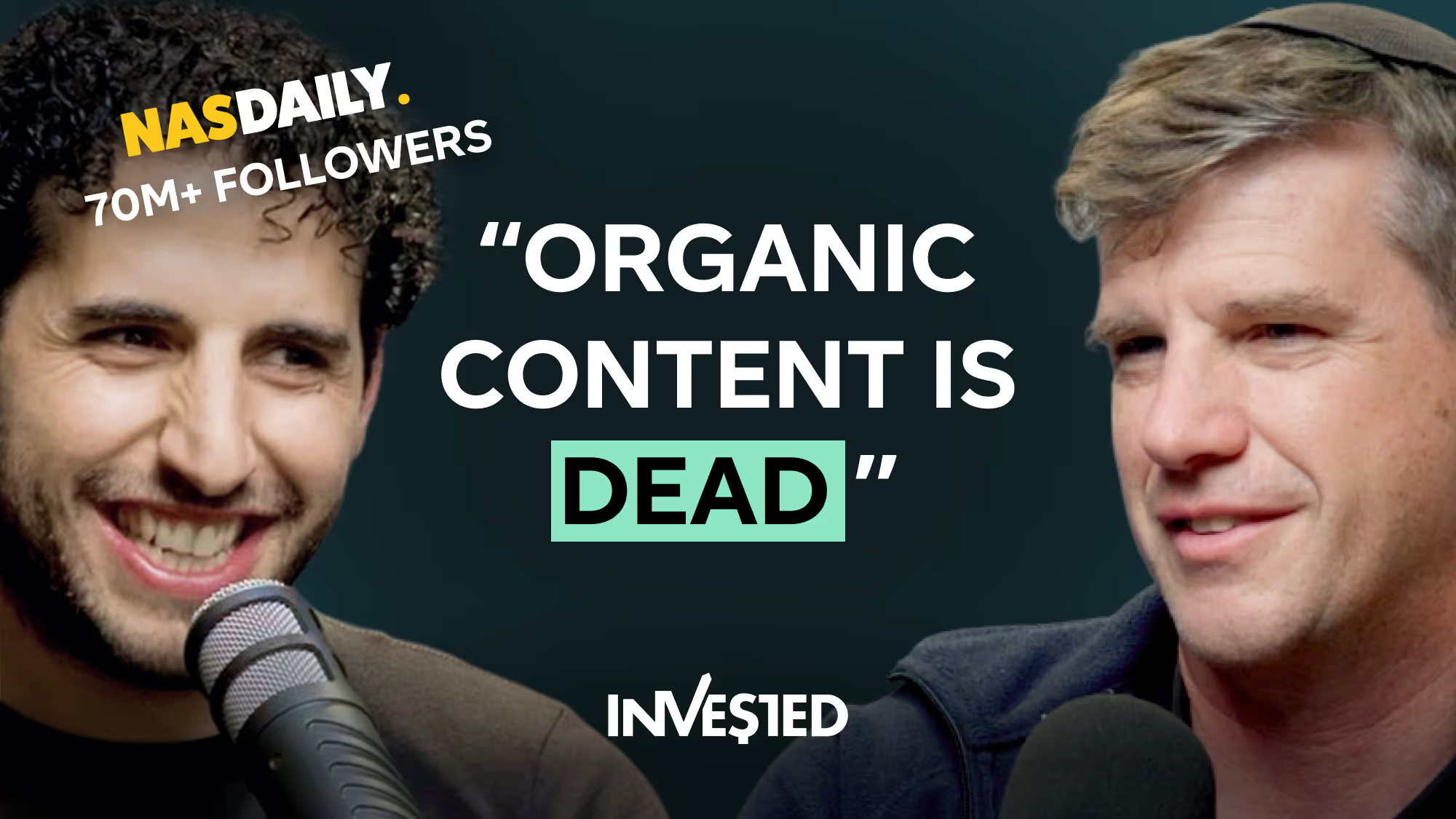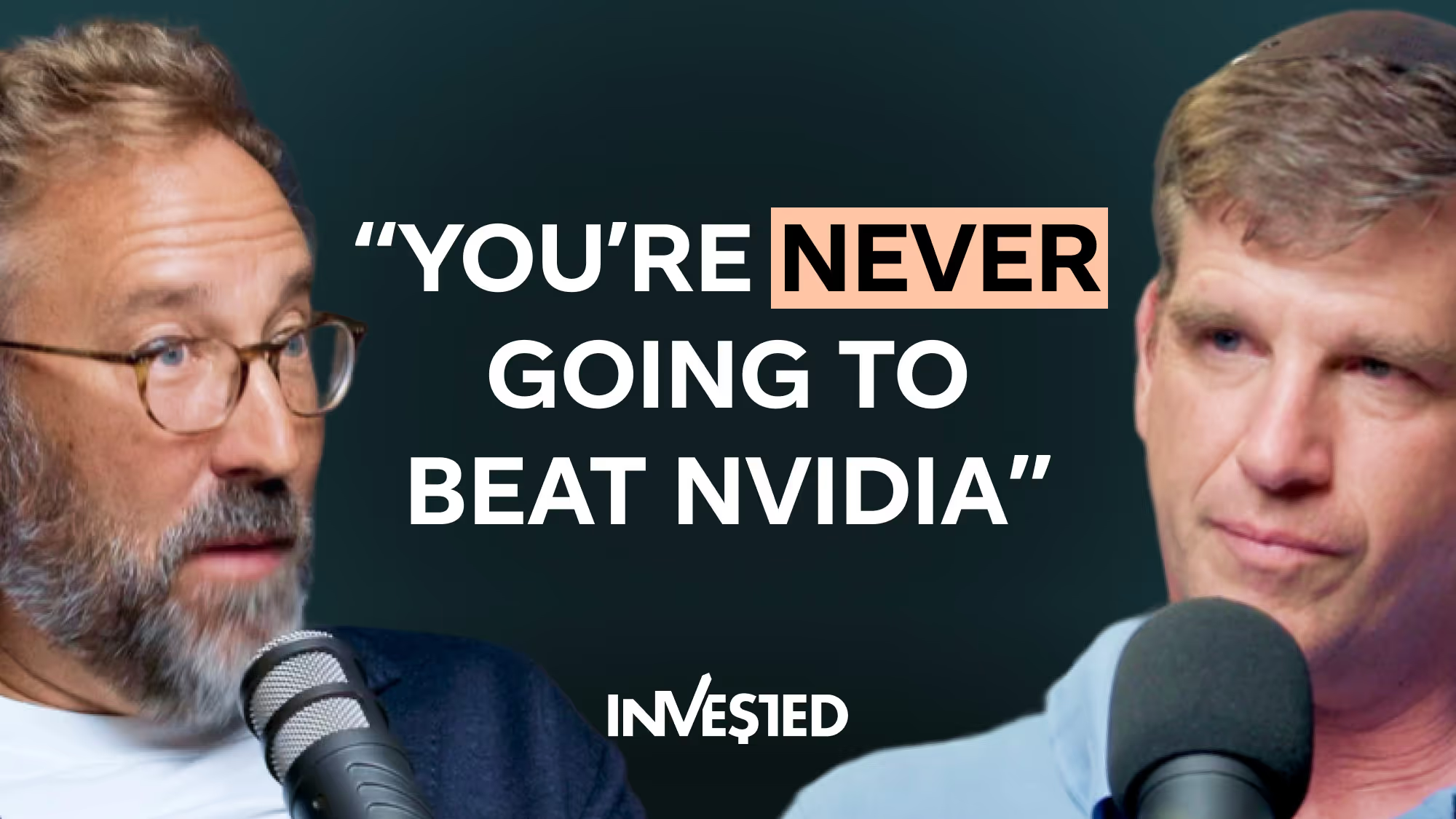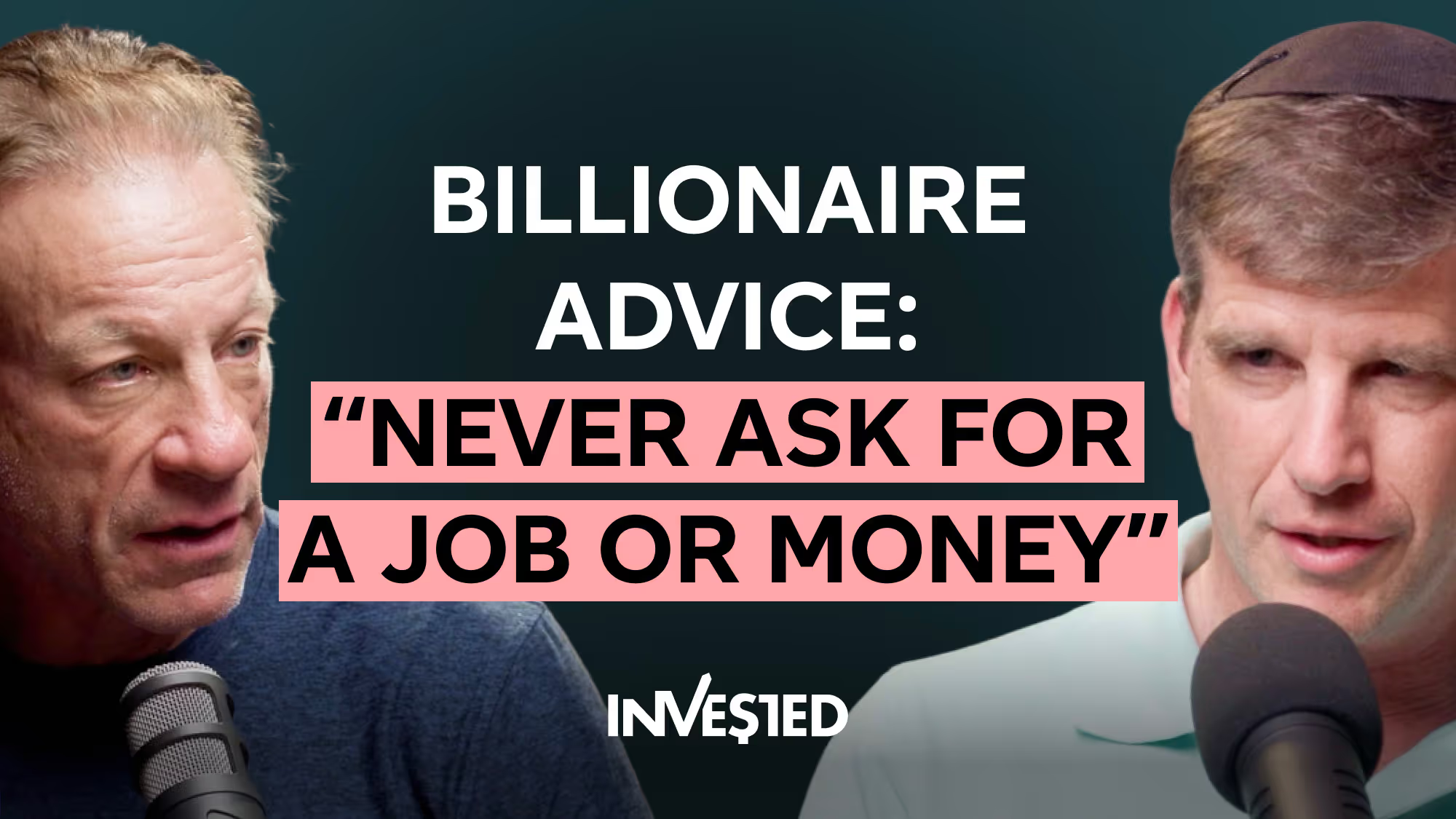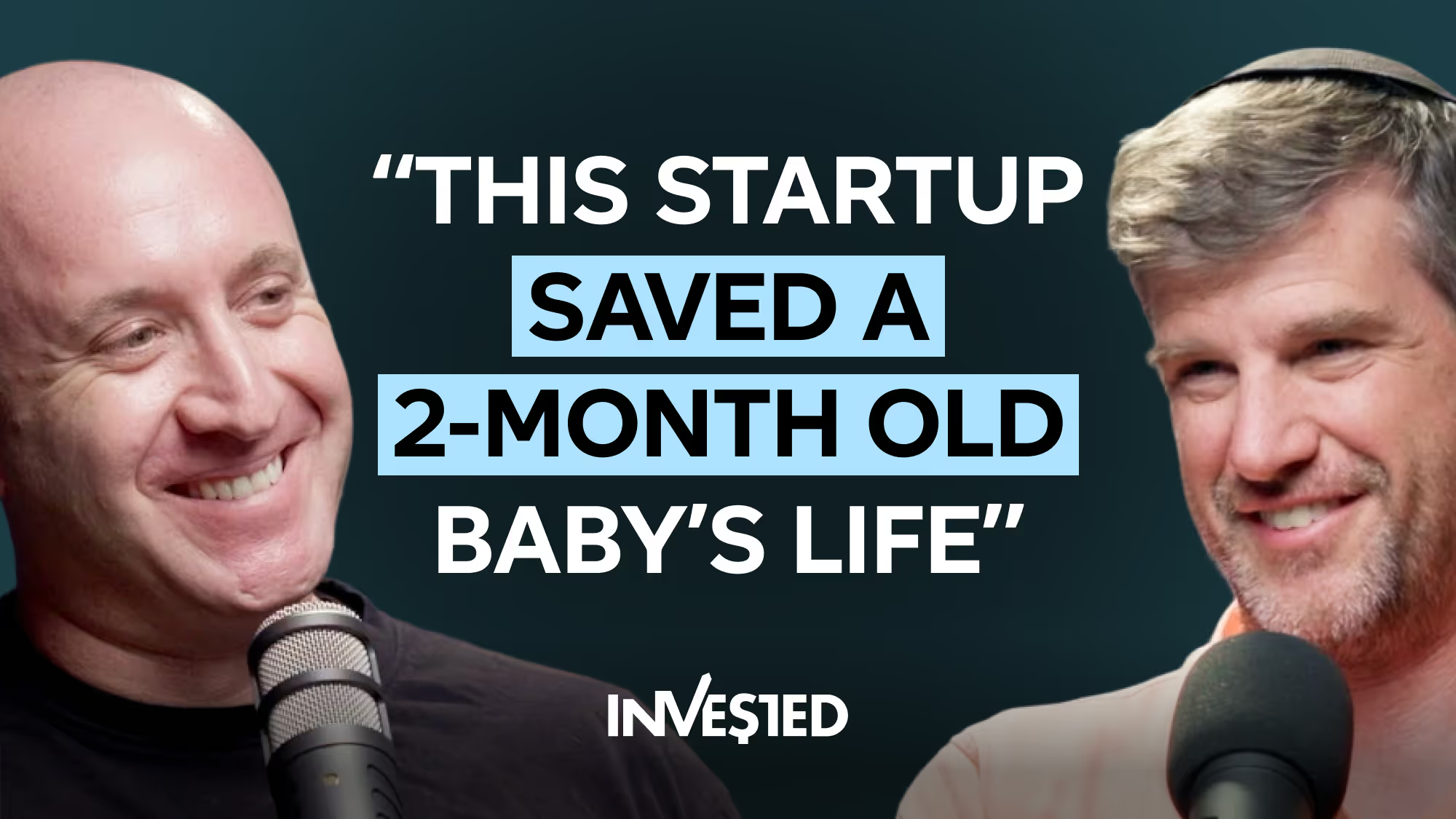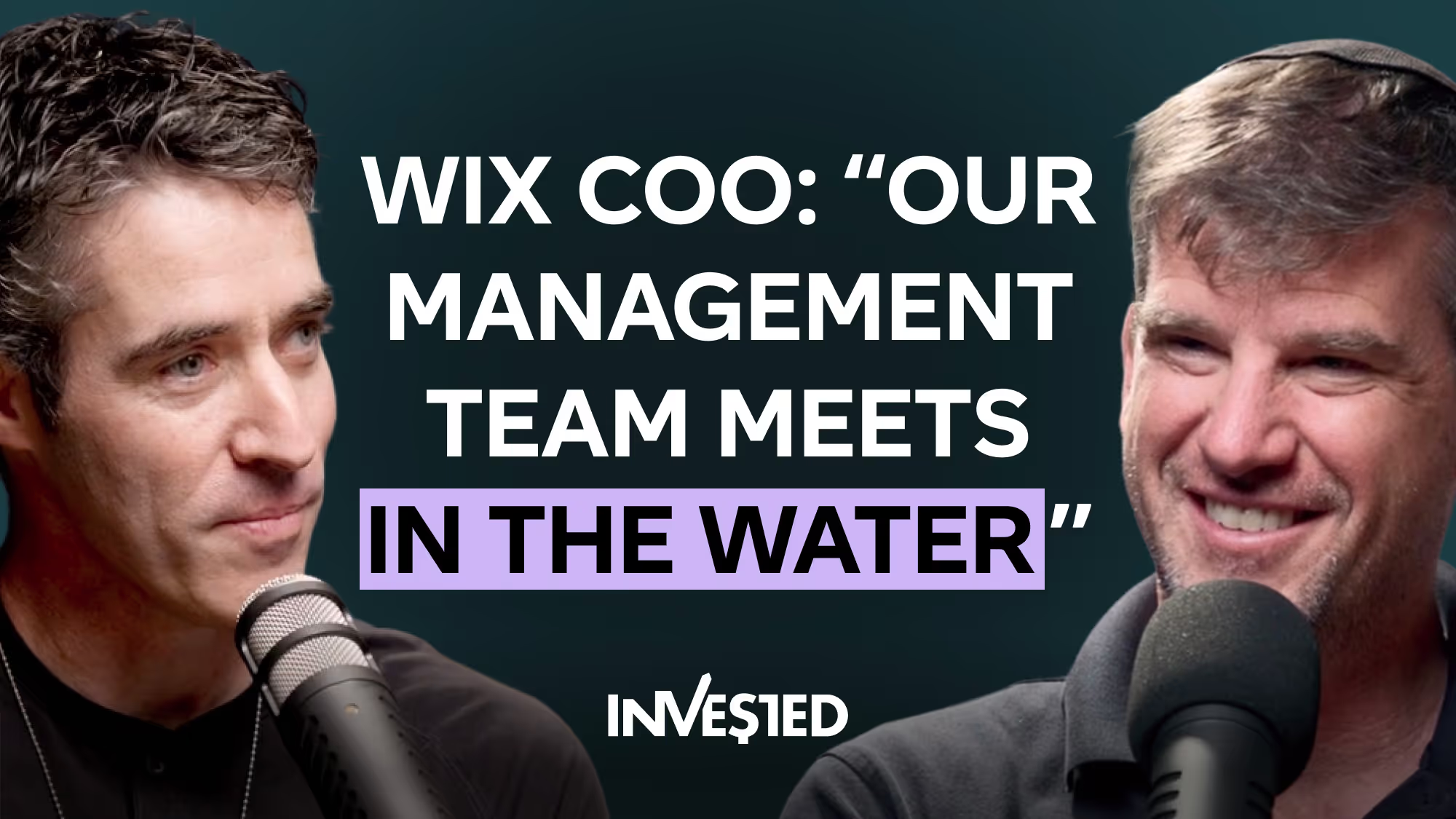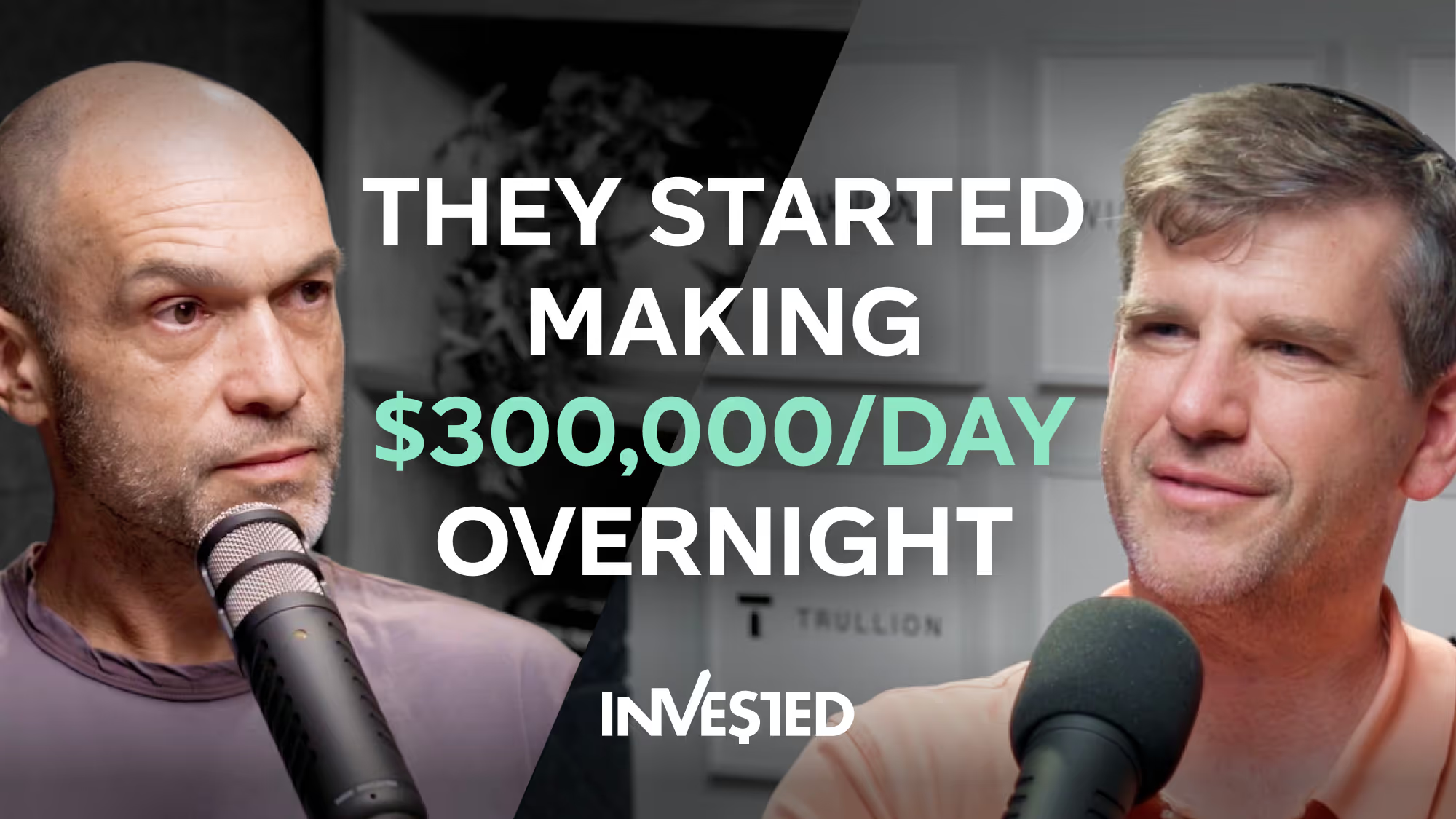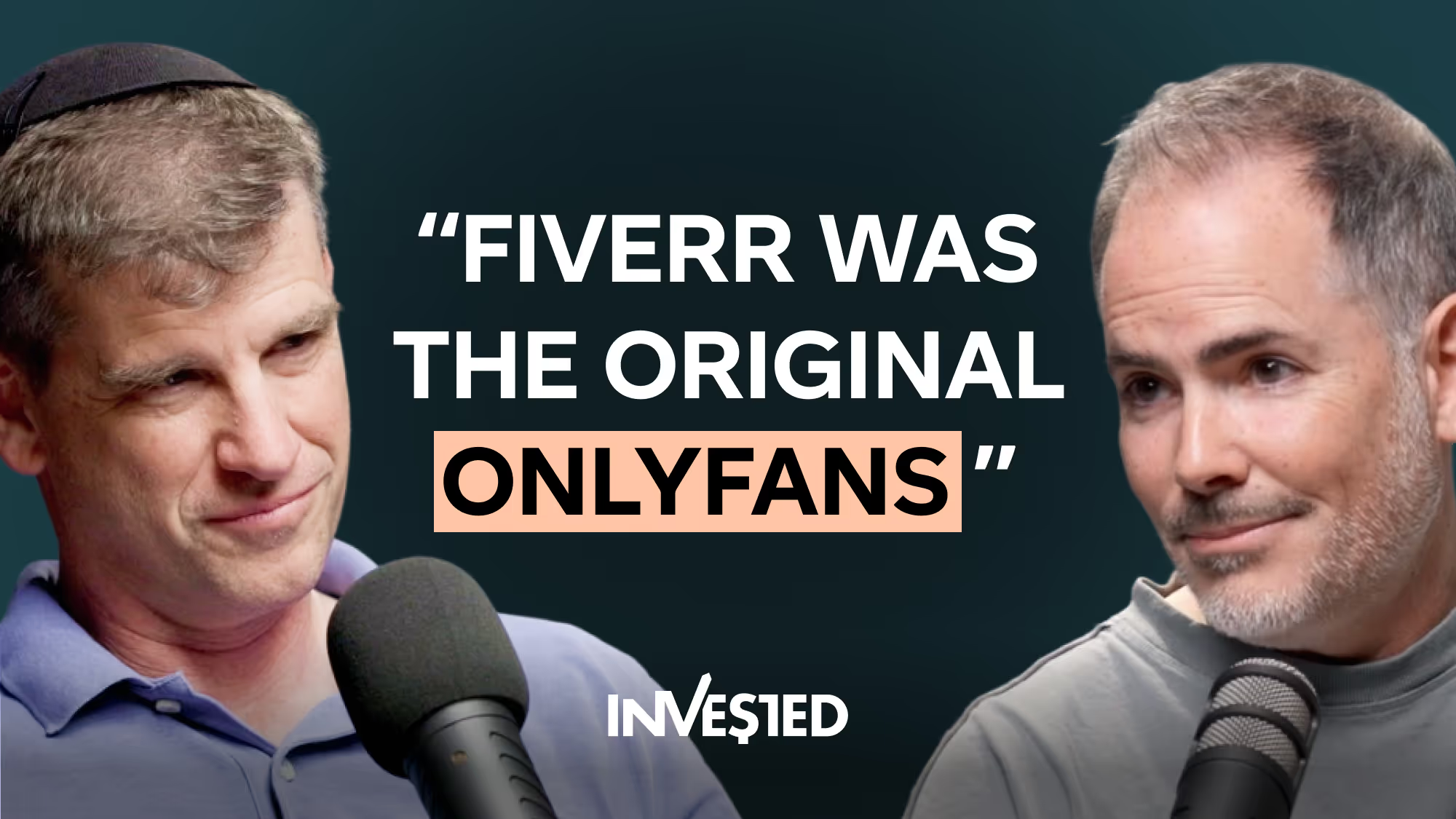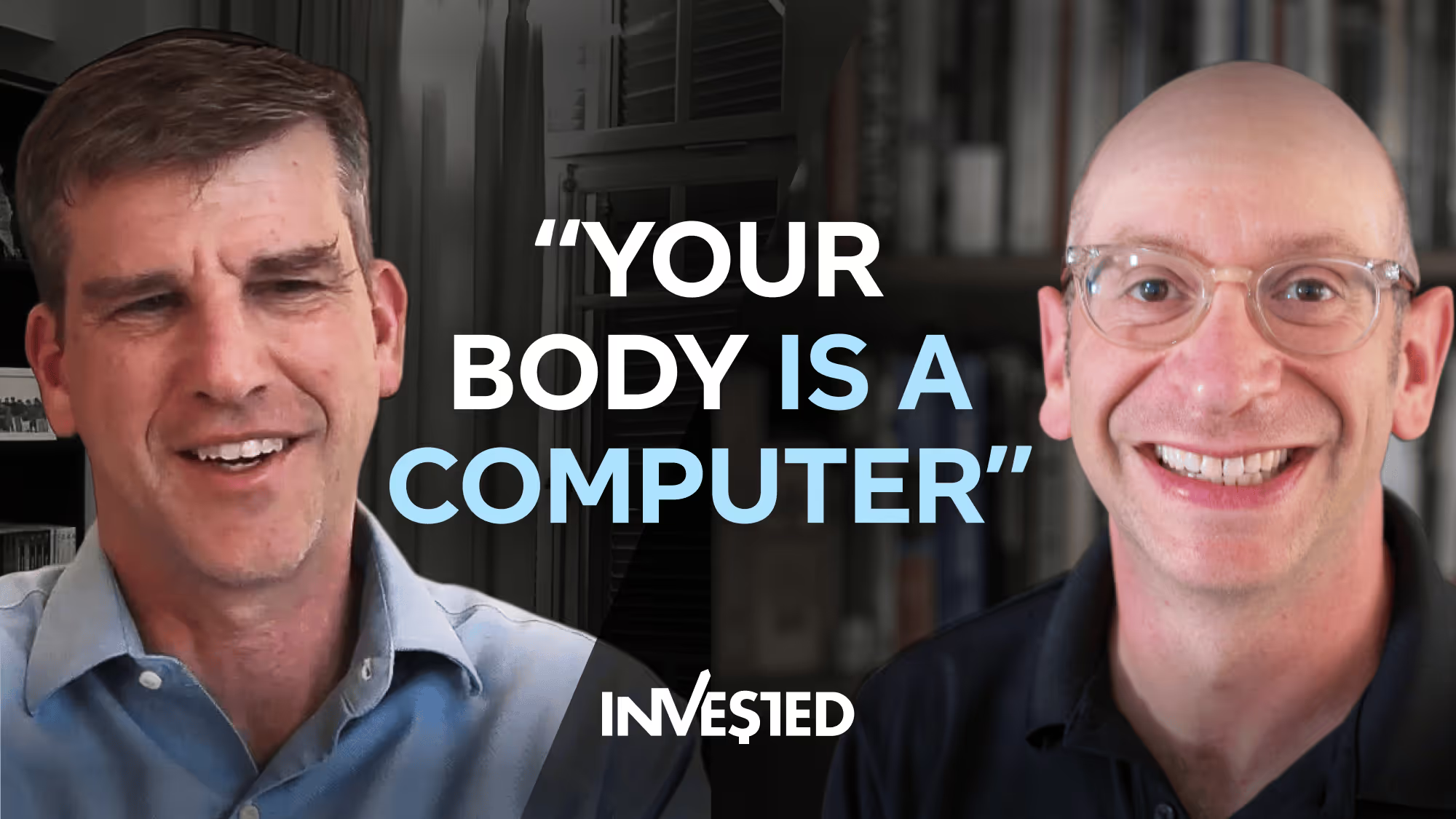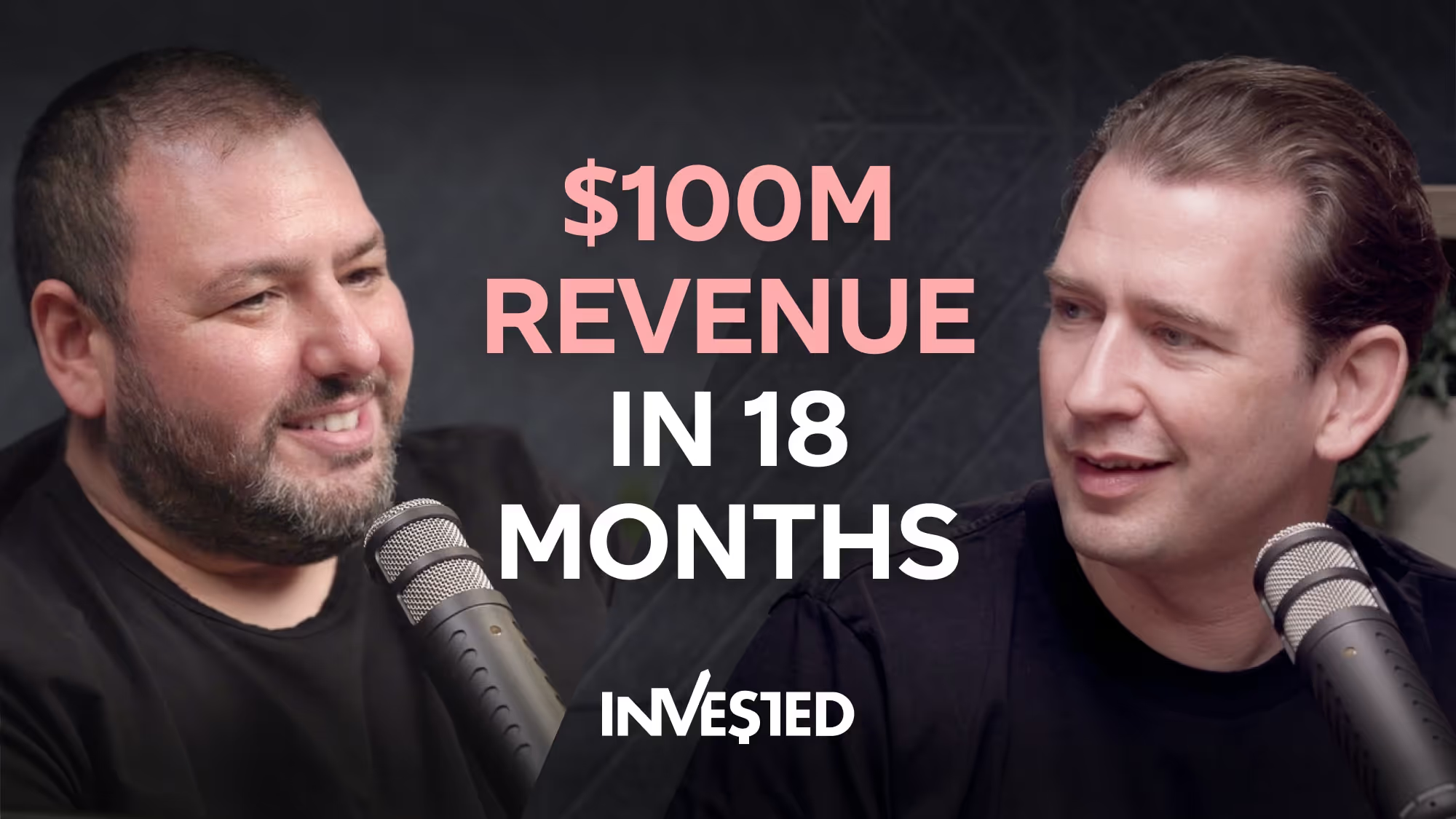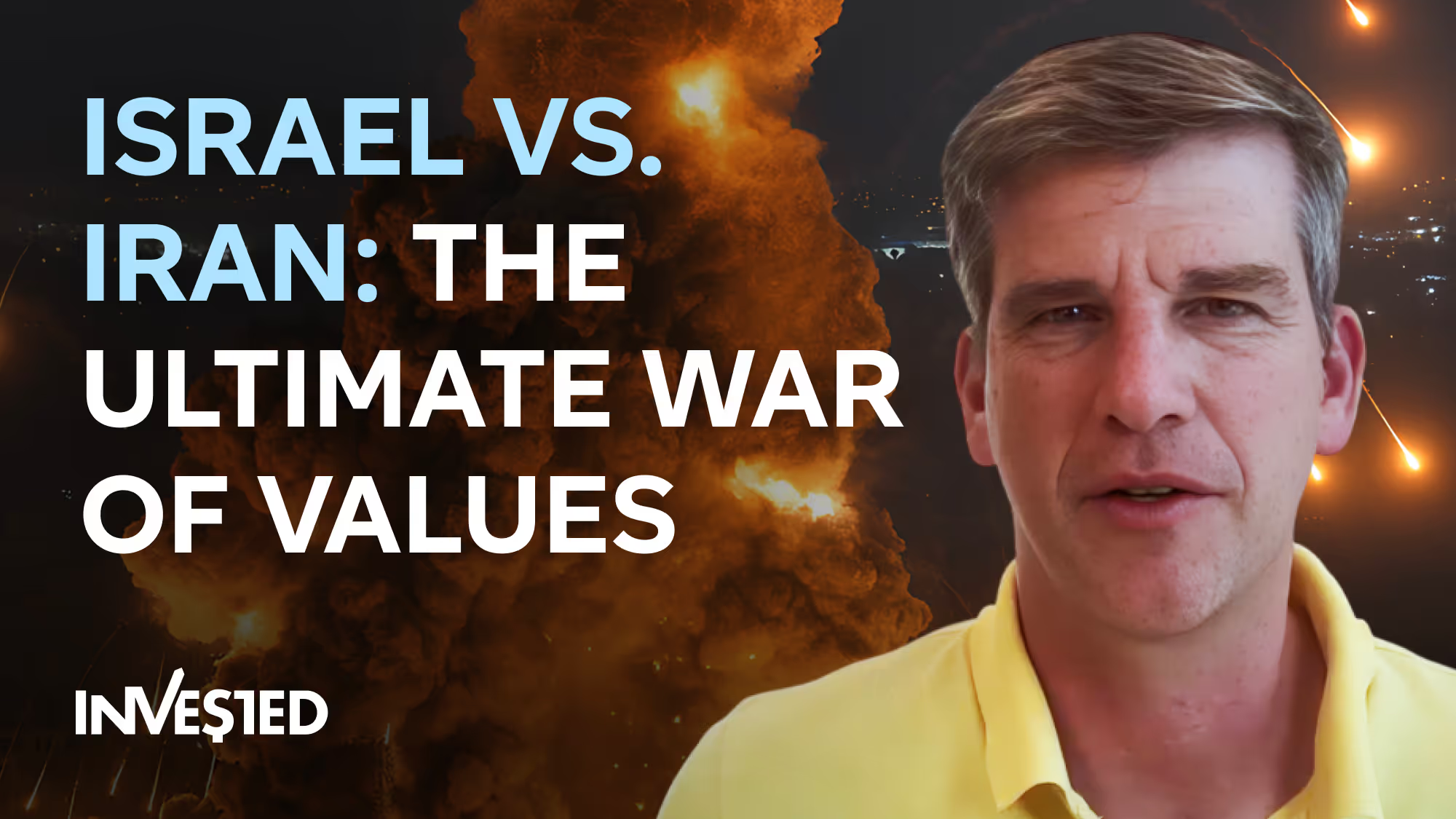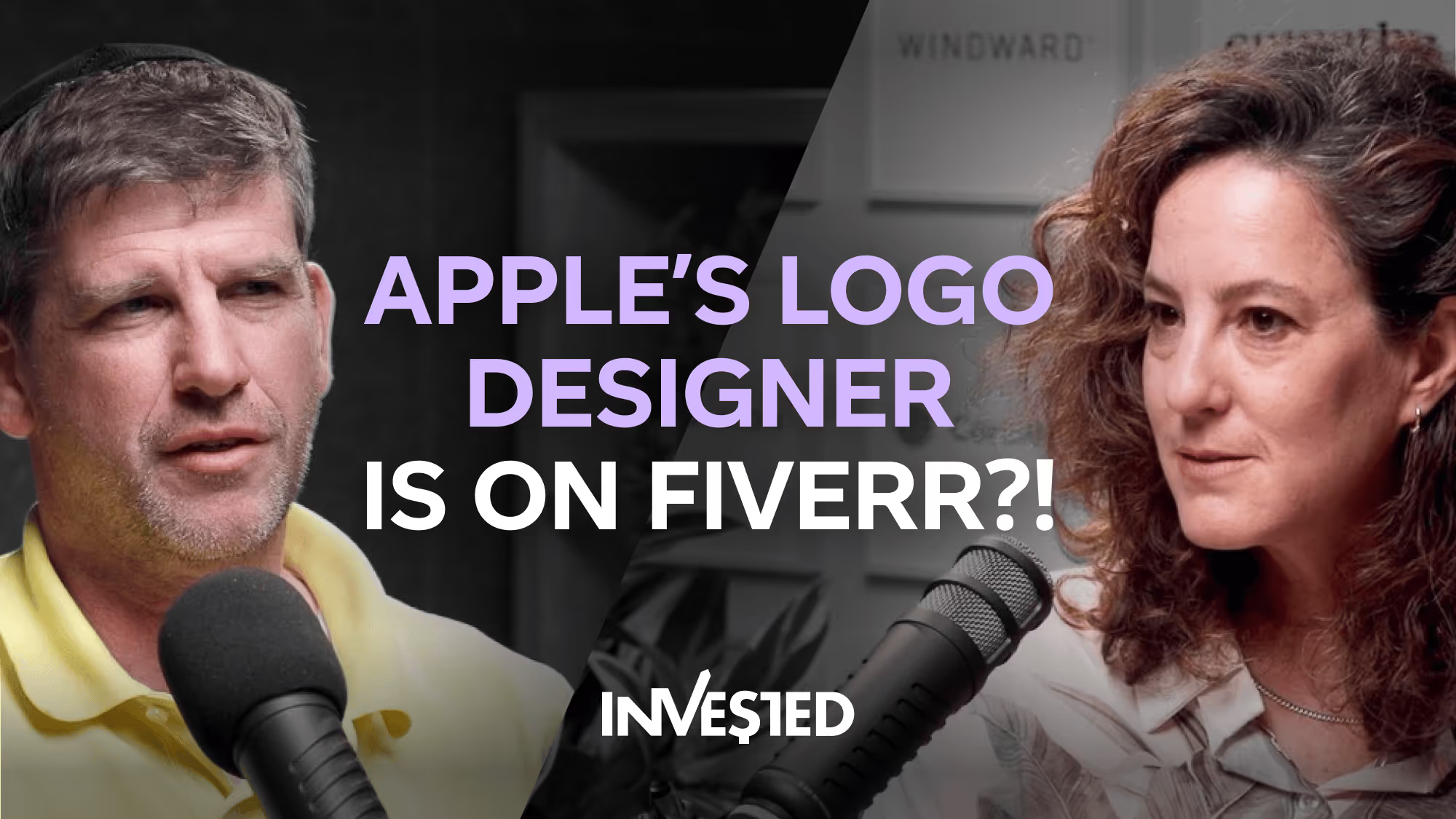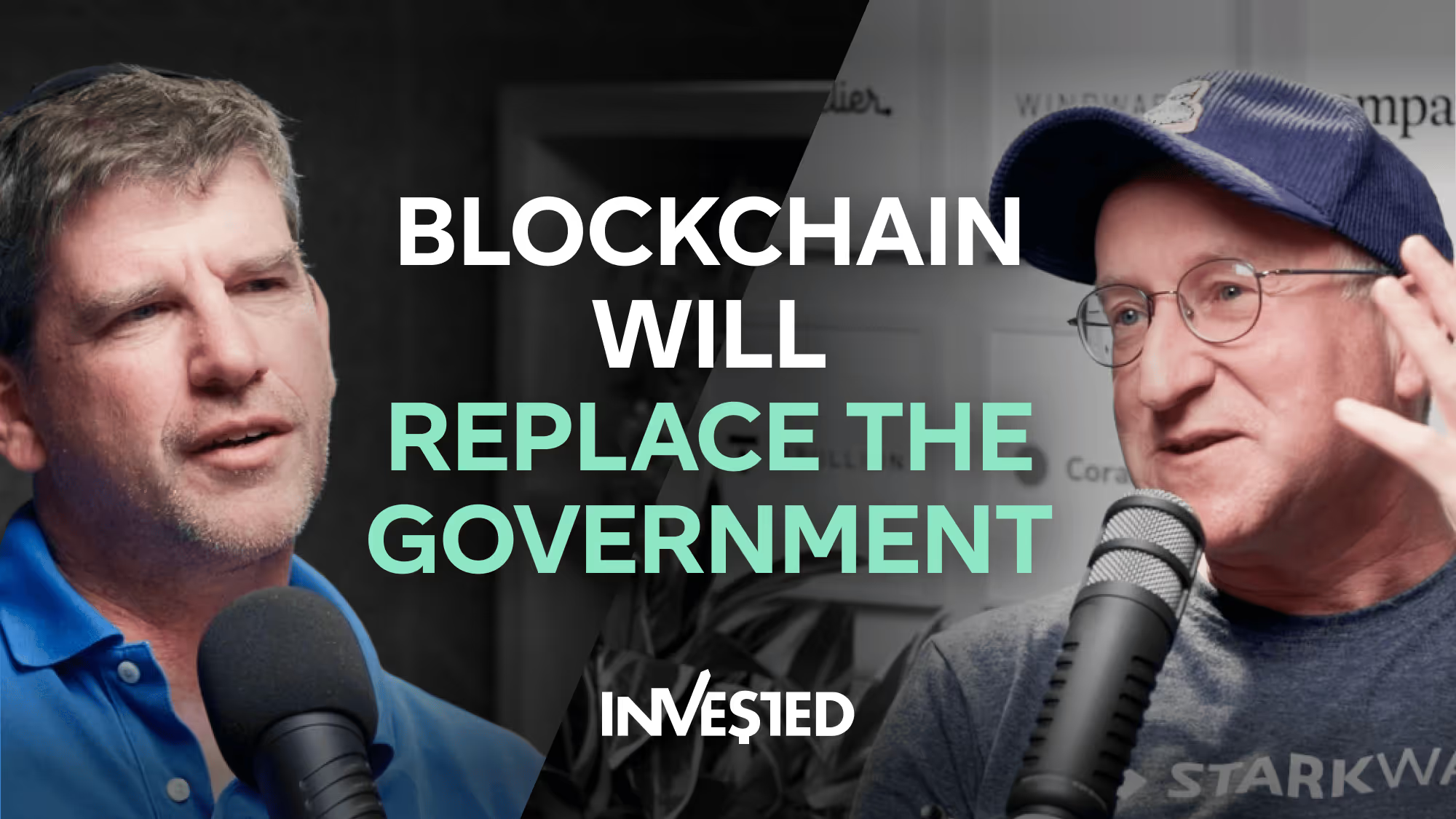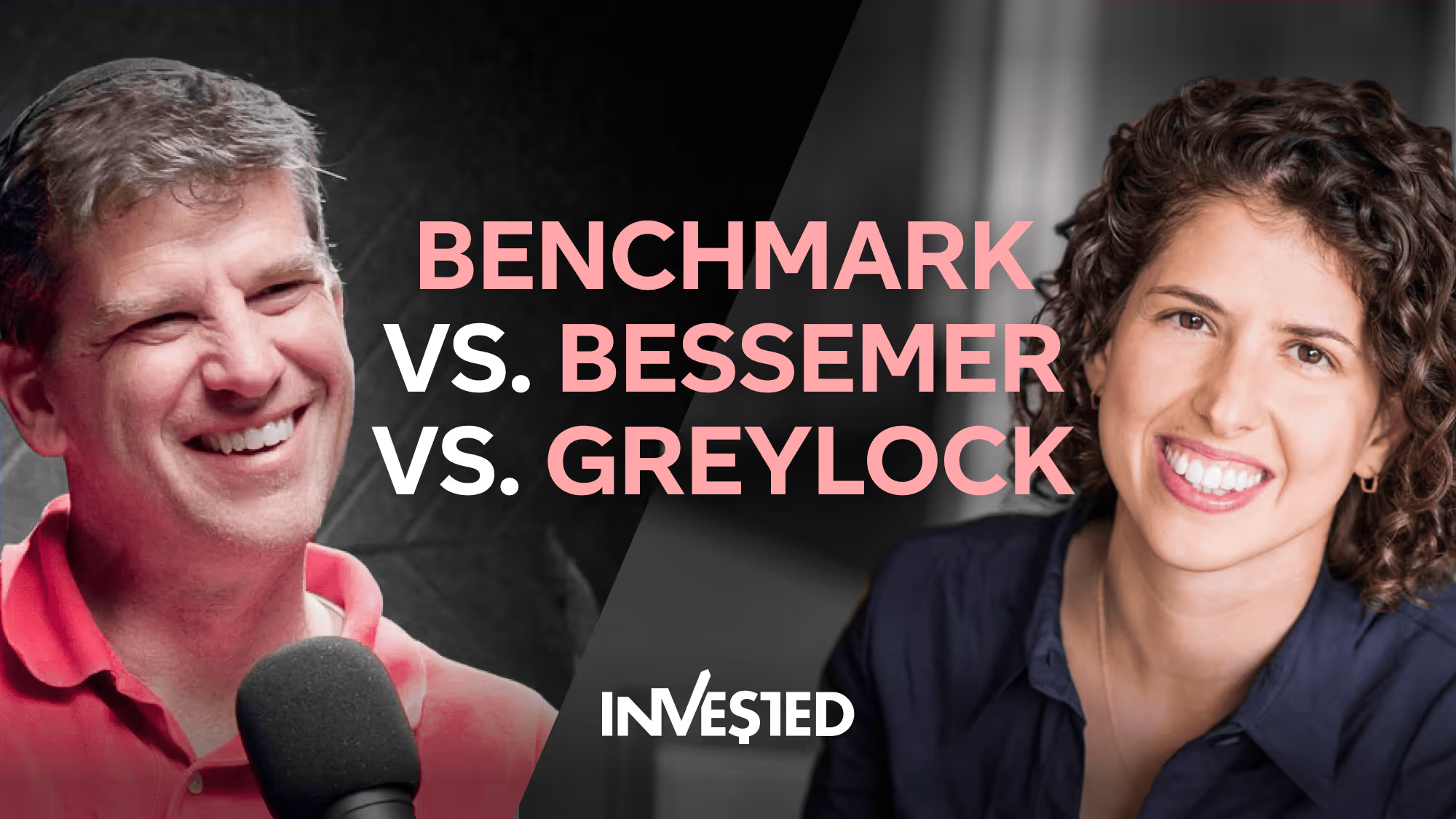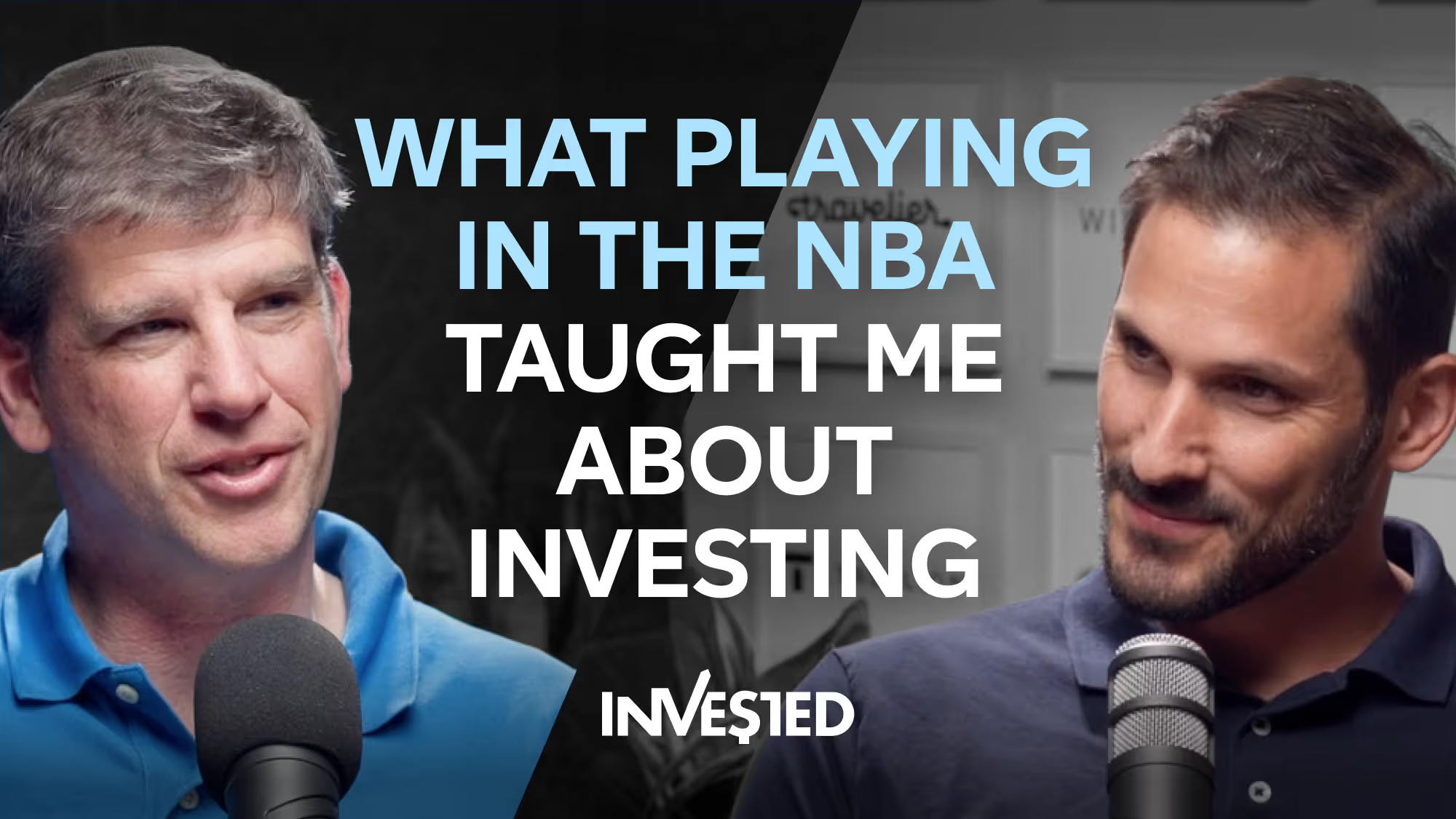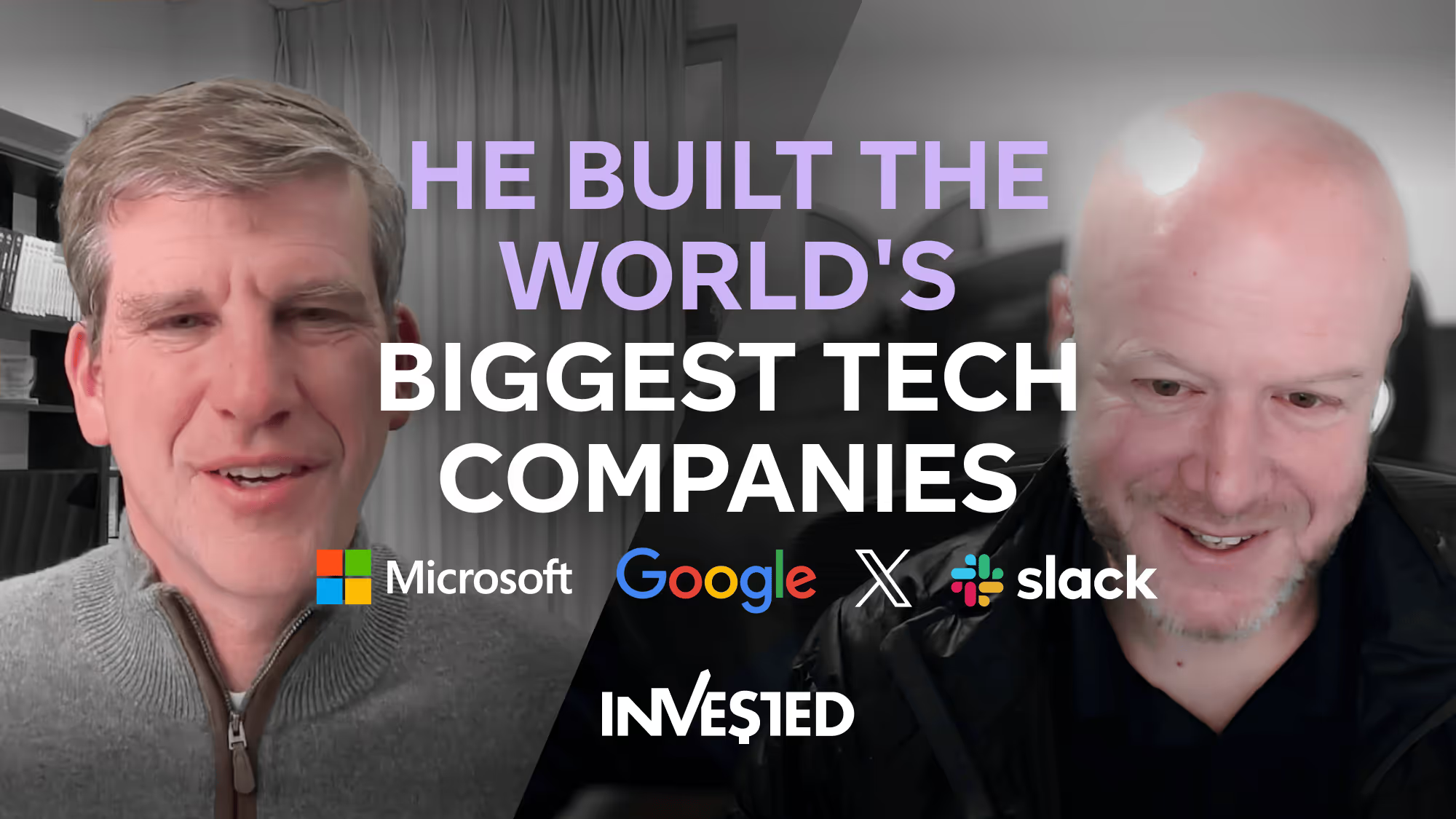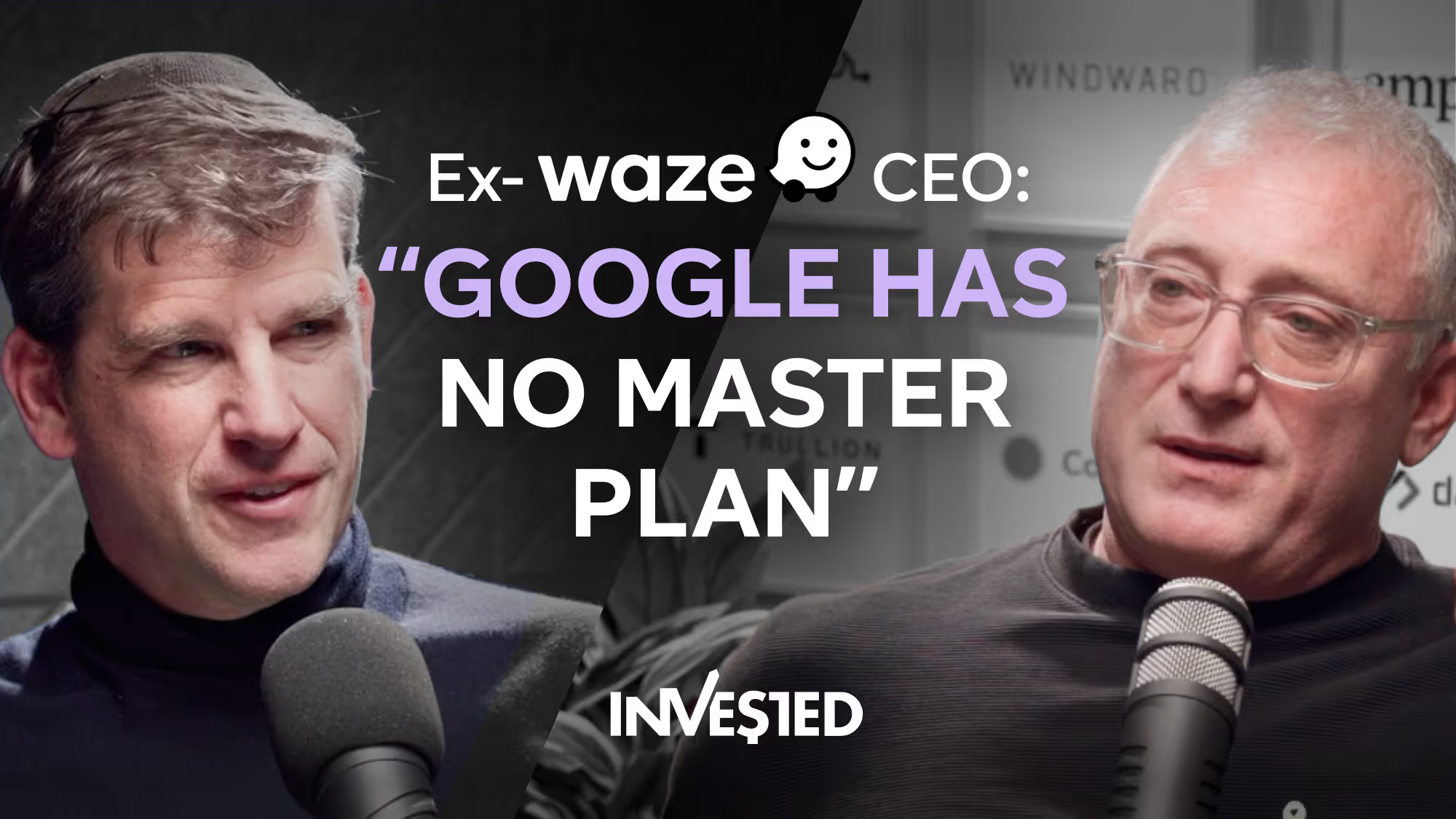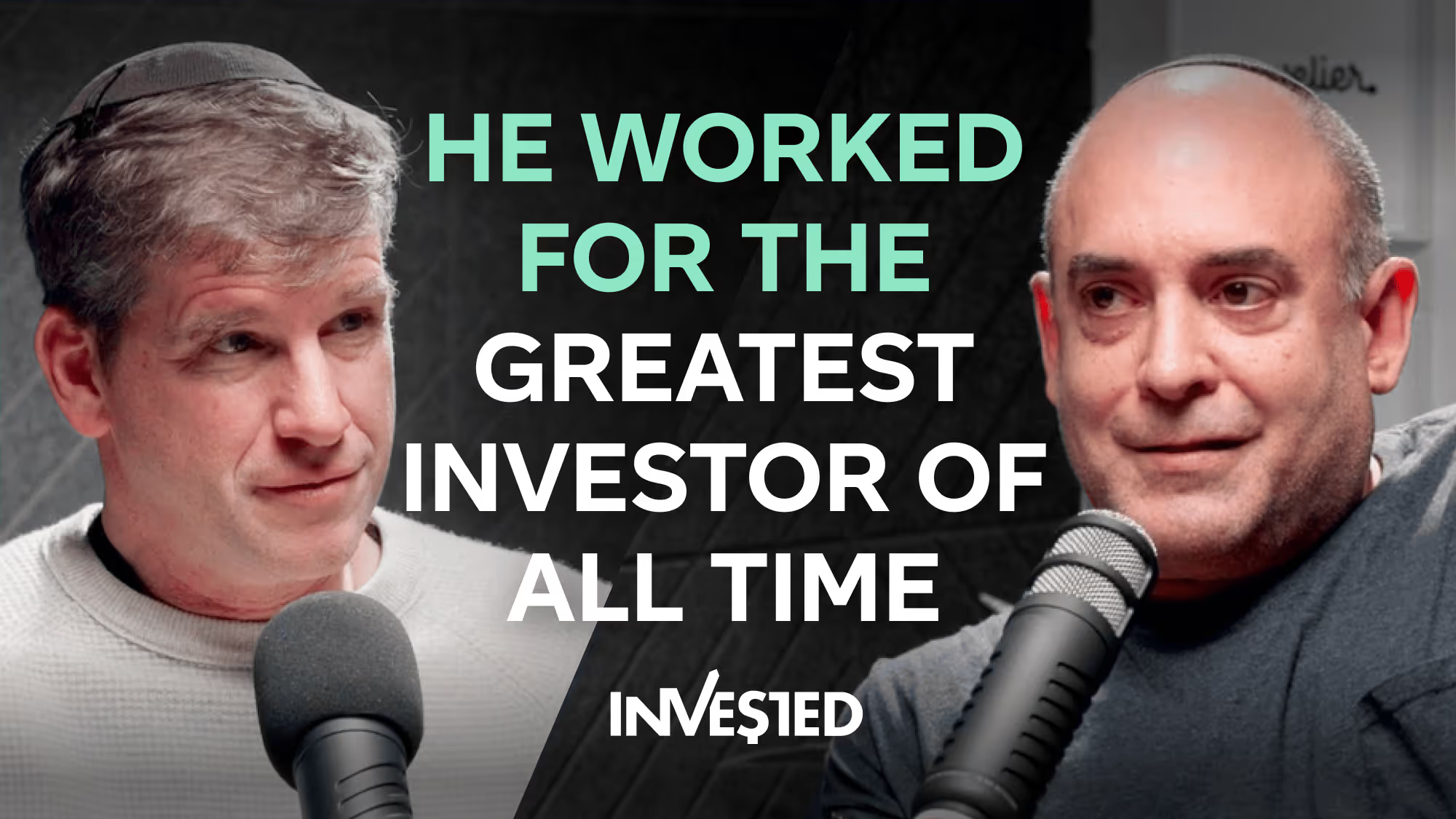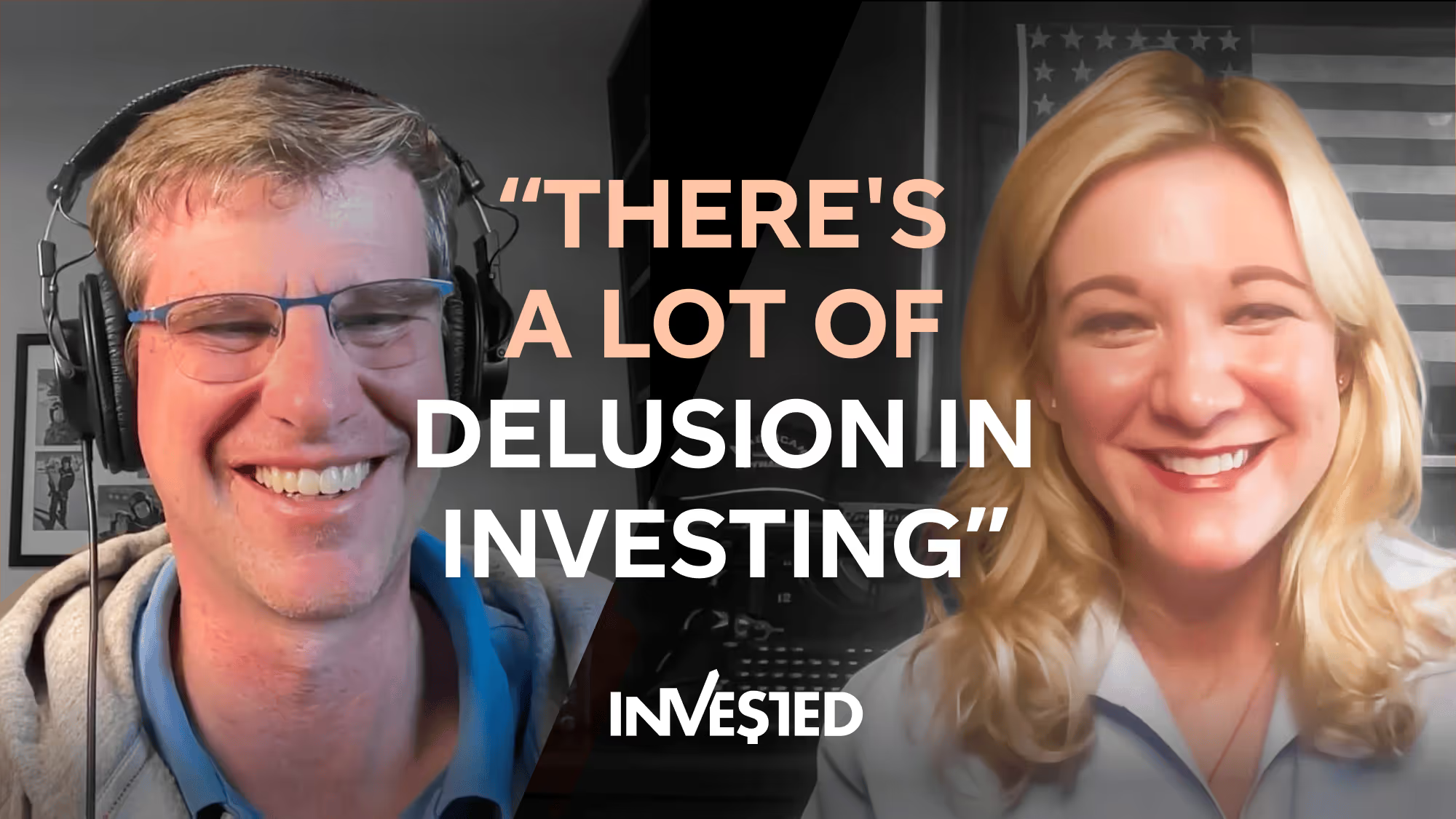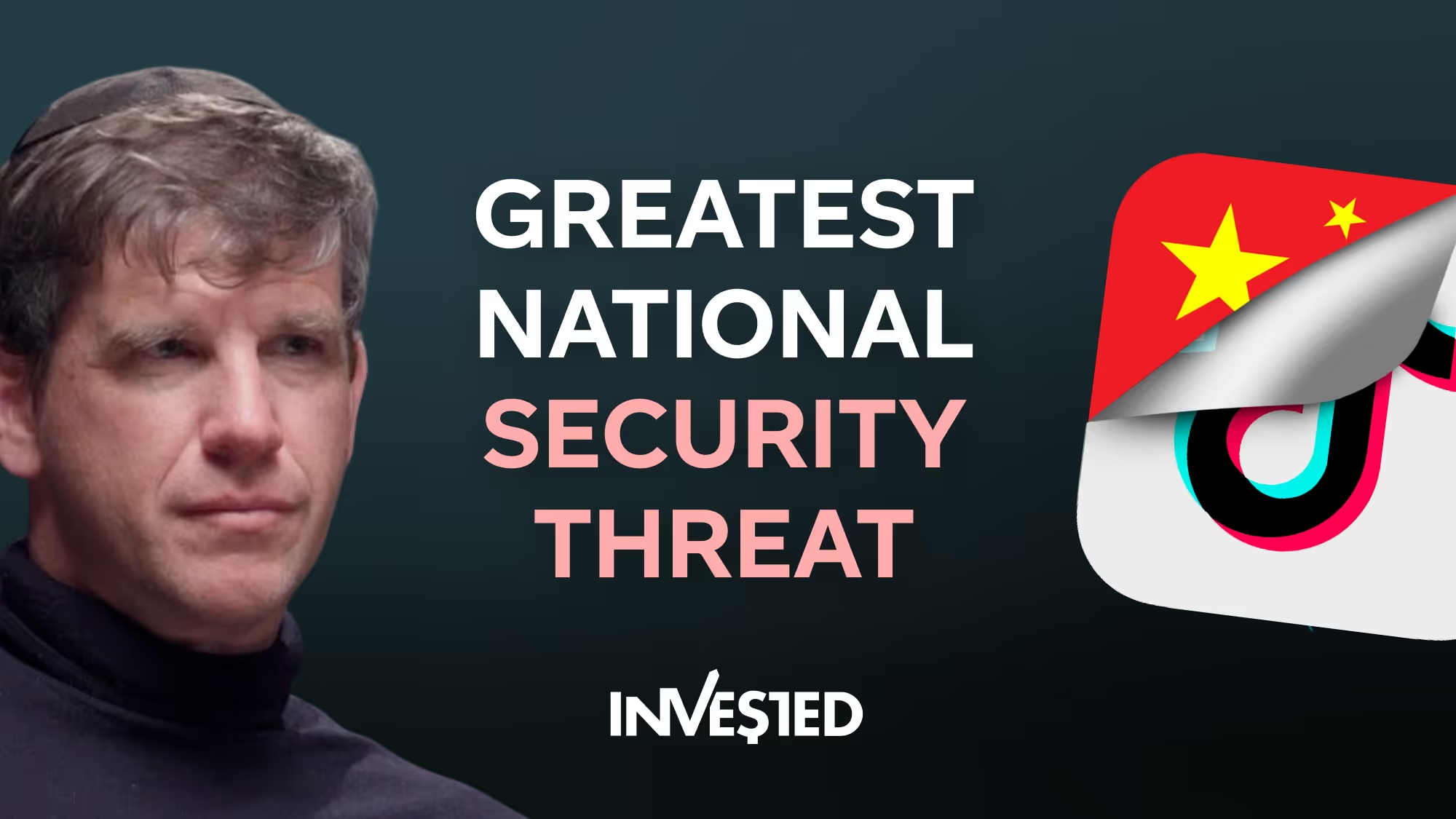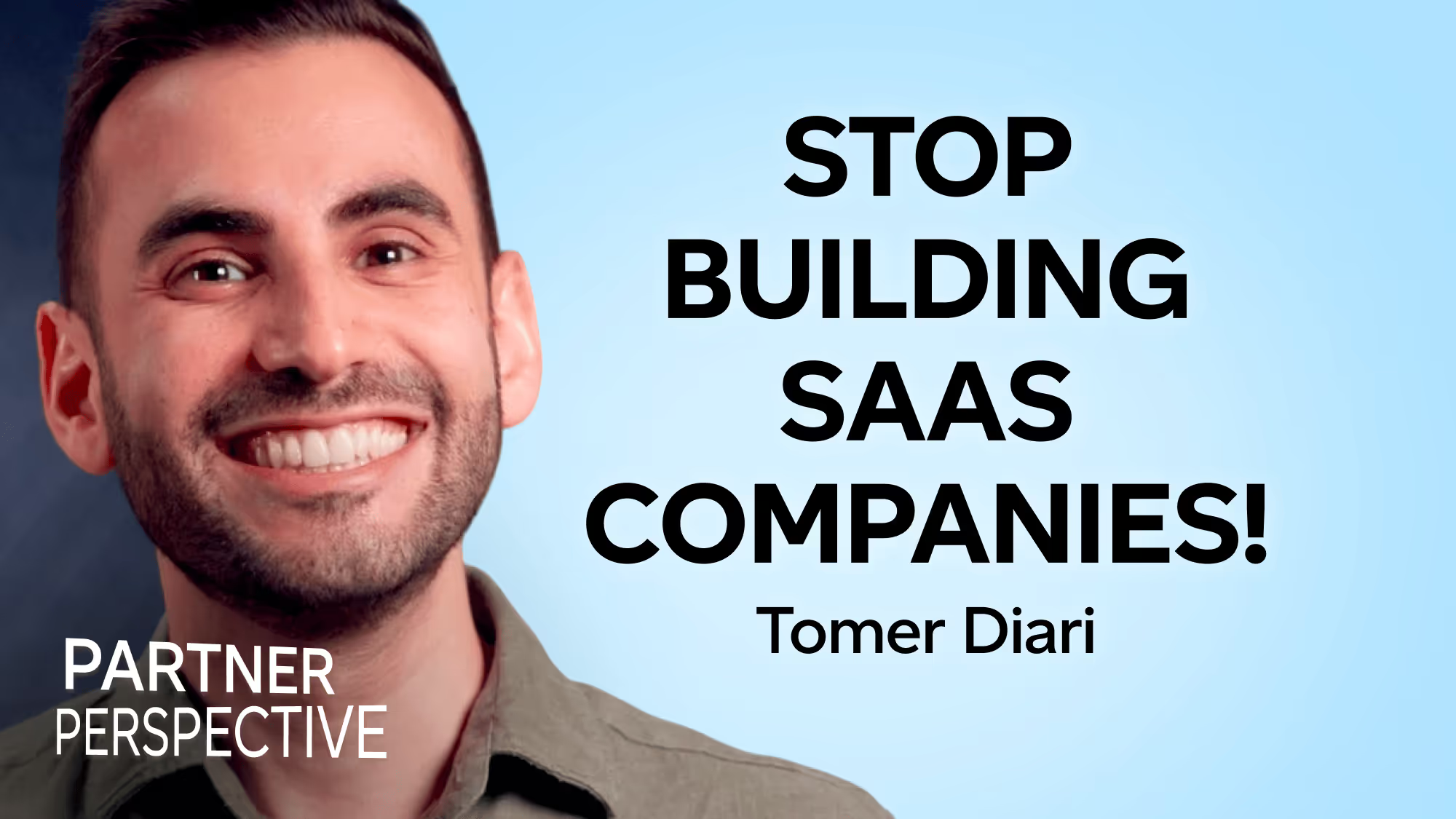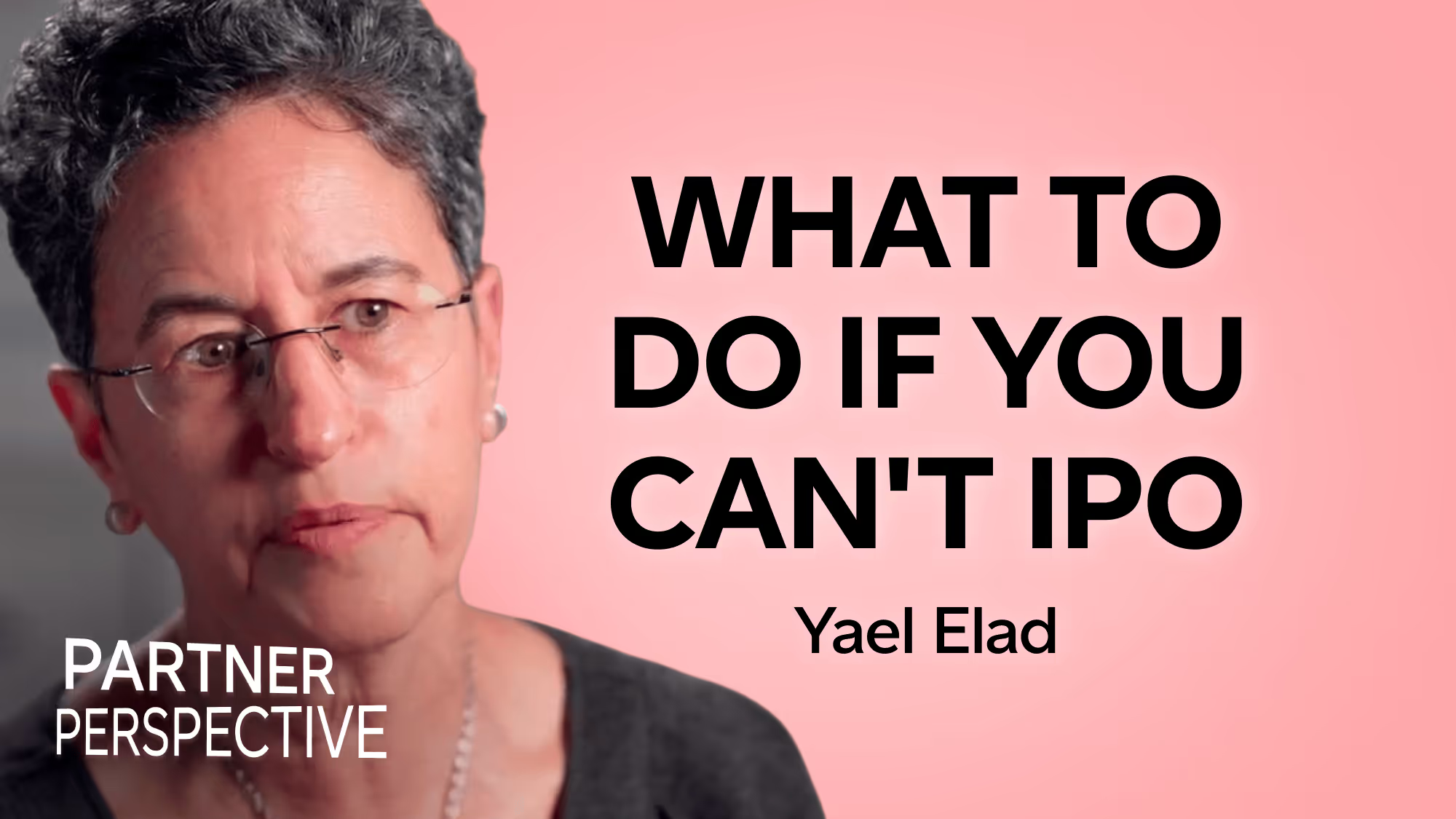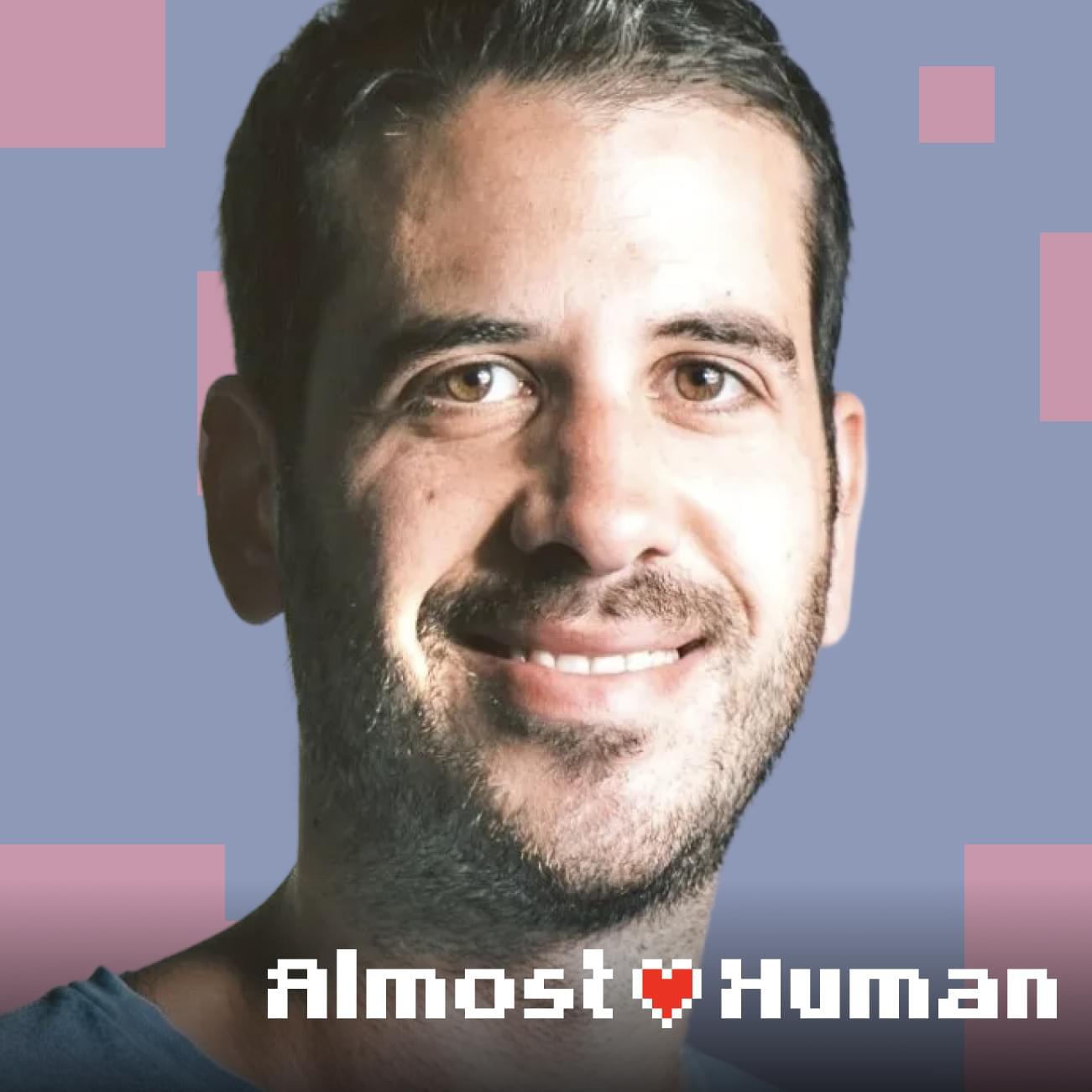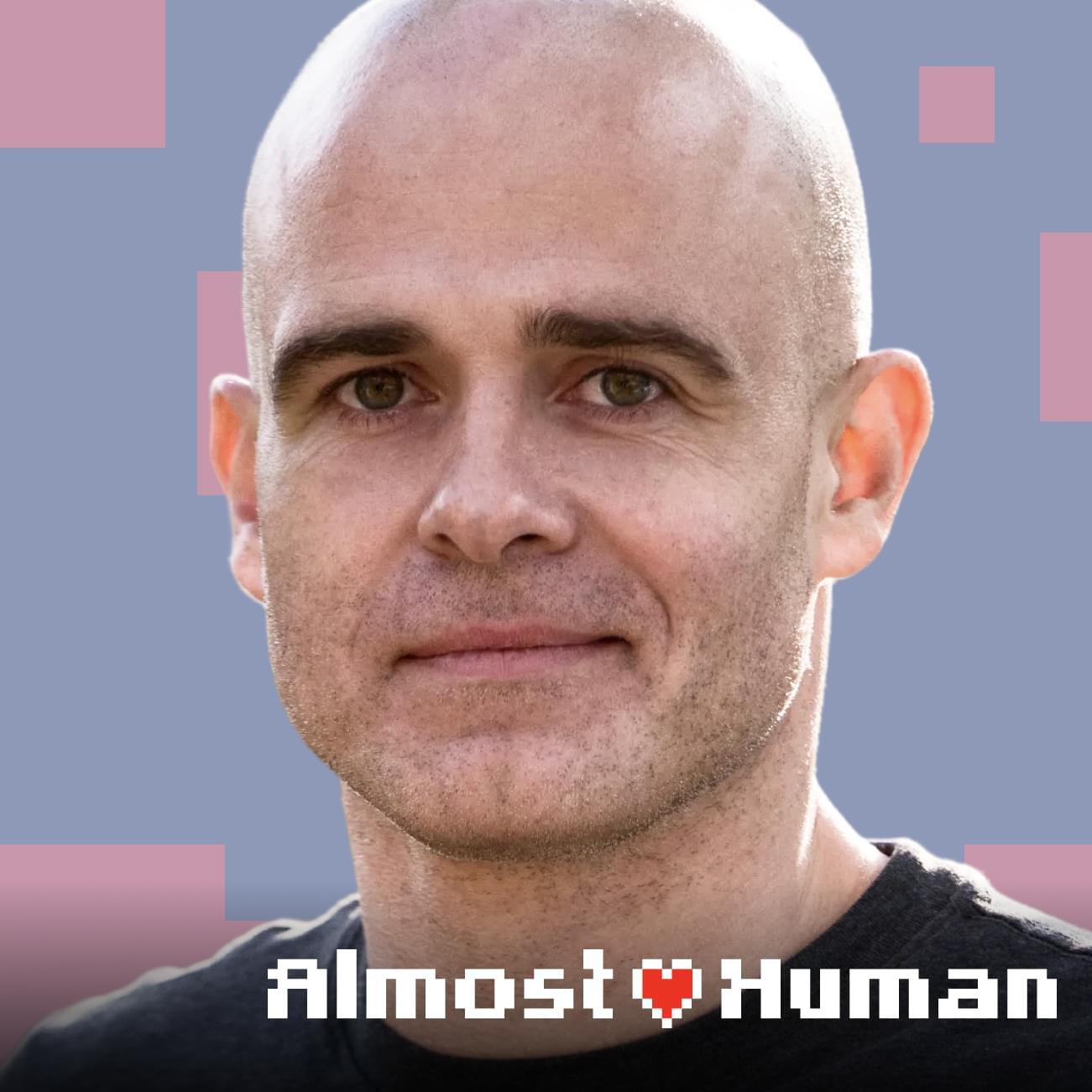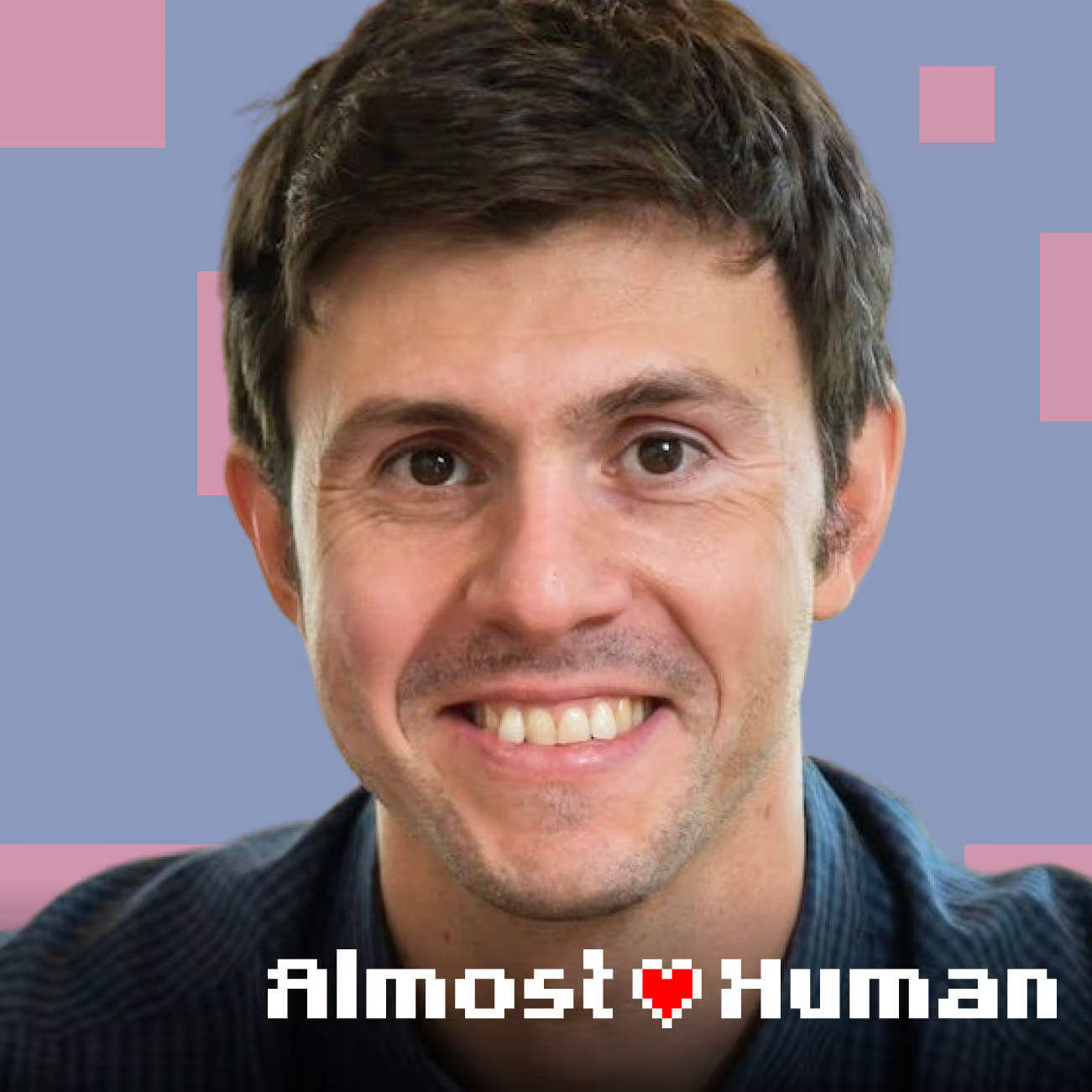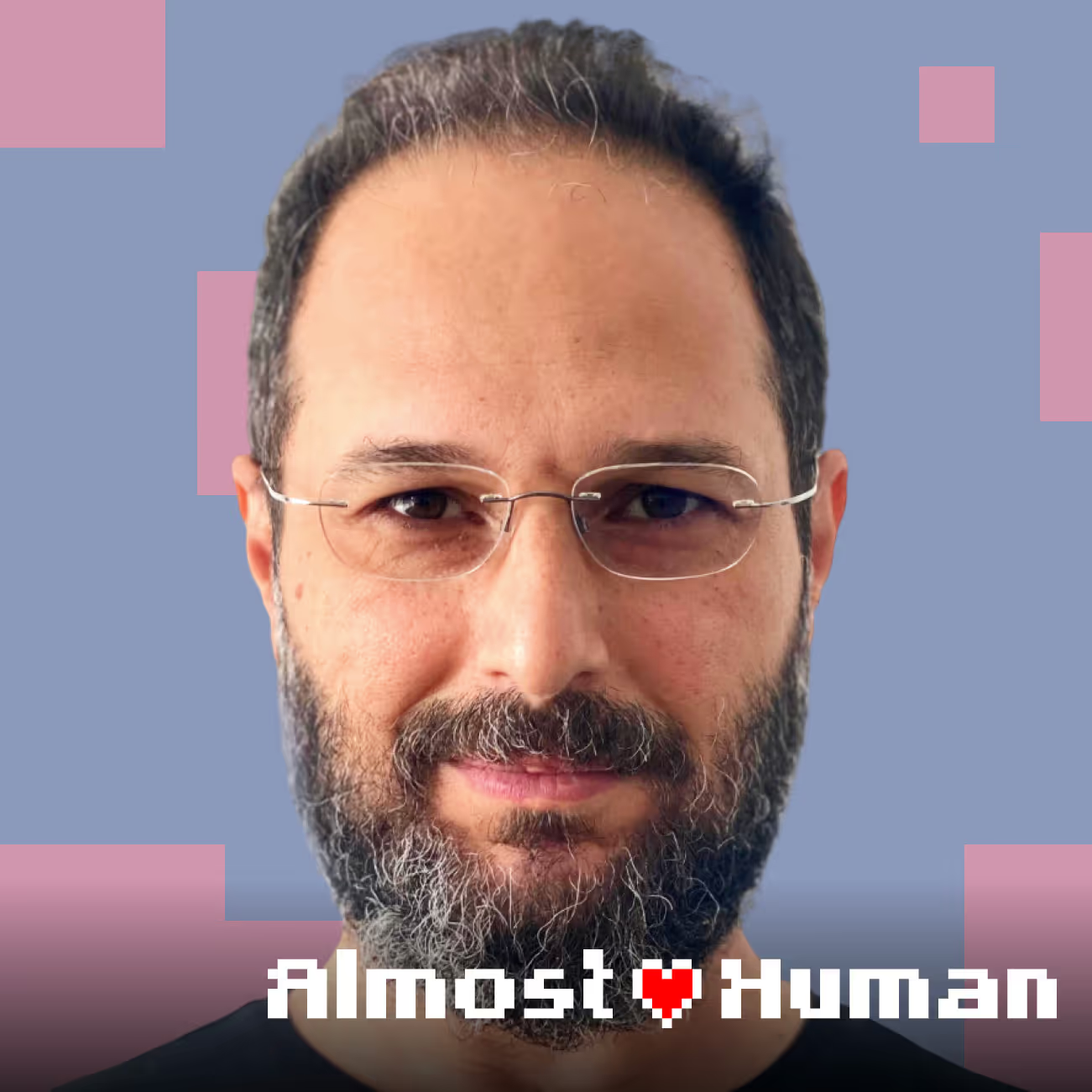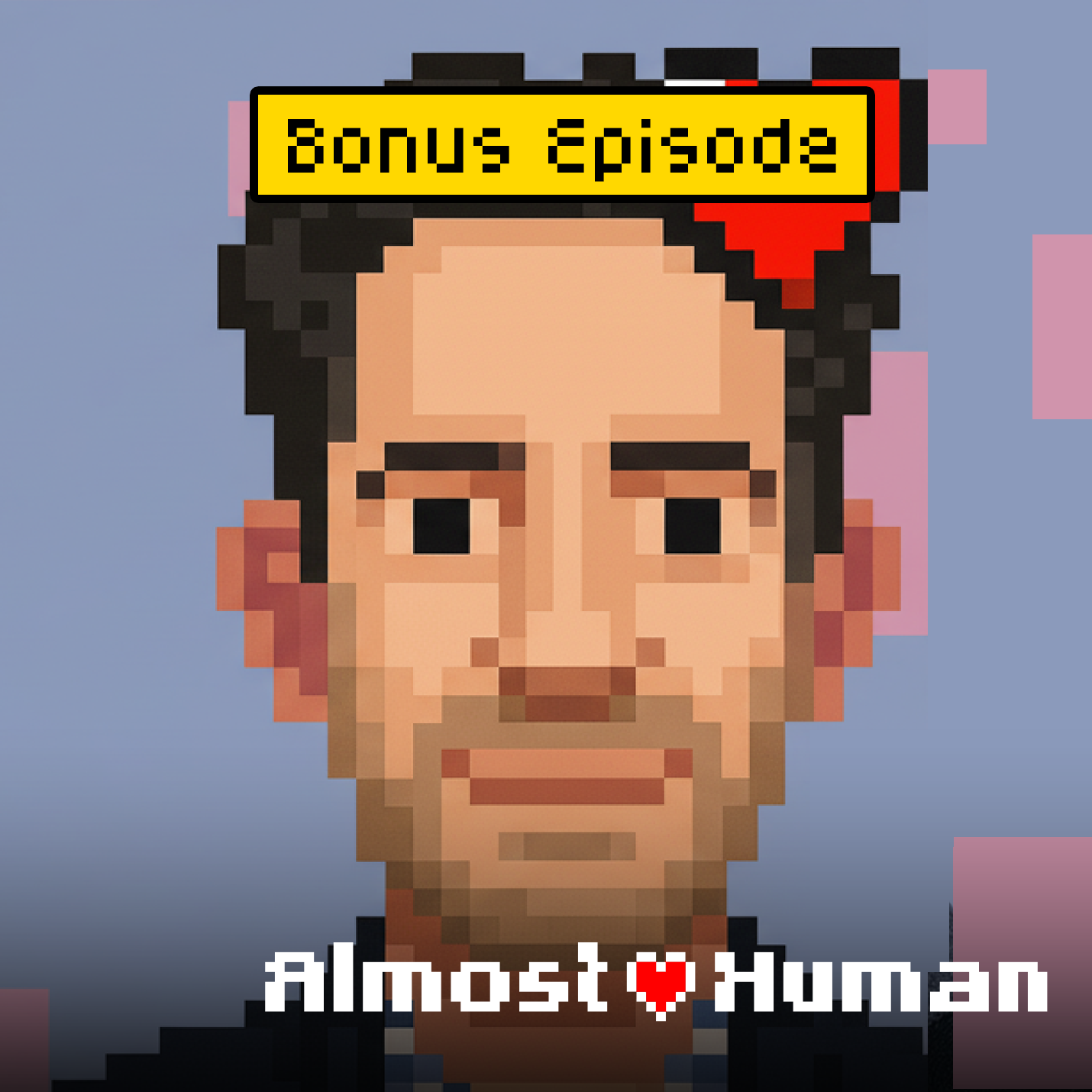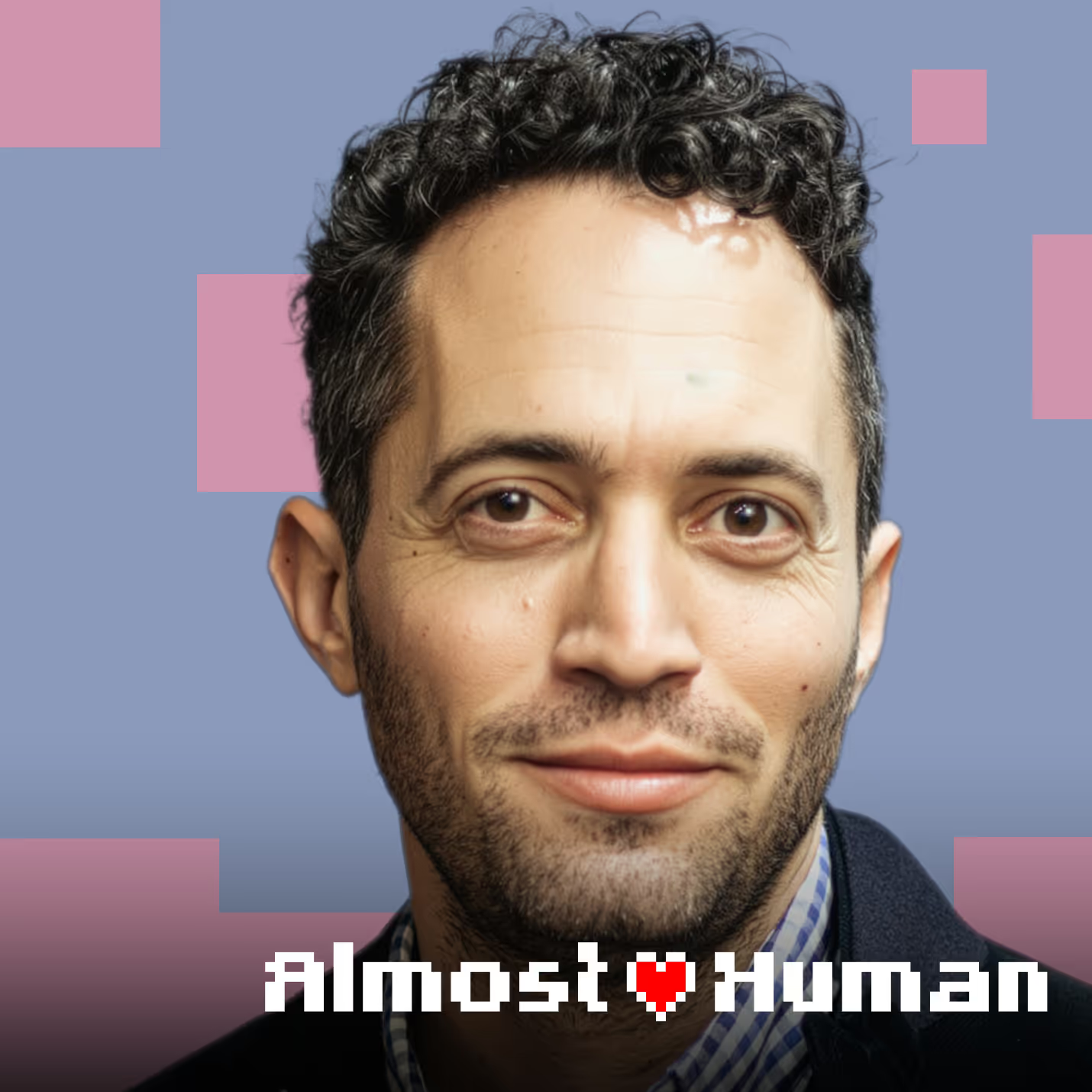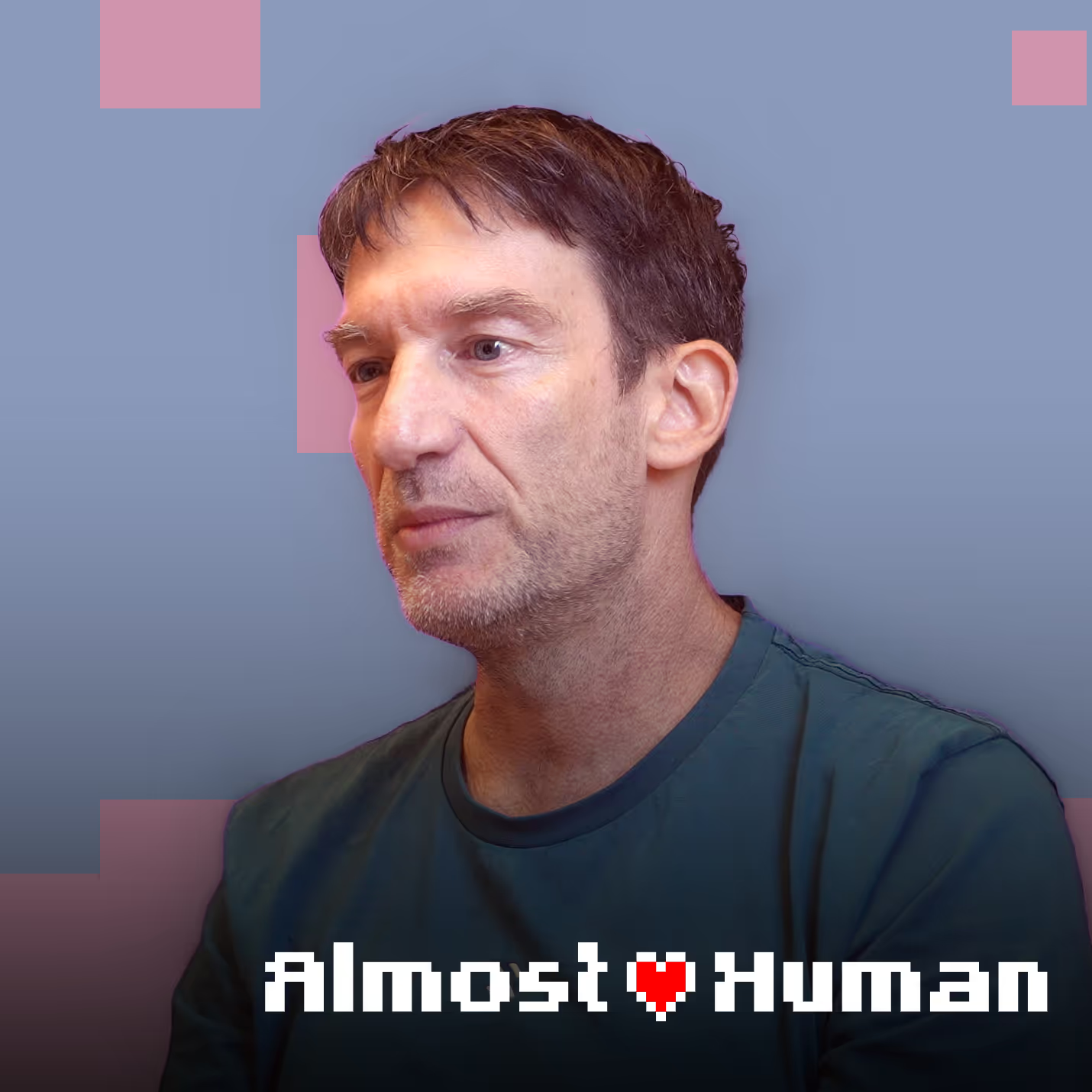Matan Bar



How can values create value? On this podcast, Michael Eisenberg talks with business leaders and venture capitalists to explore the values and purpose behind their businesses, the impact technology can have on humanity, and the humanity behind digitization.
Matan Bar



How can values create value? On this podcast, Michael Eisenberg talks with business leaders and venture capitalists to explore the values and purpose behind their businesses, the impact technology can have on humanity, and the humanity behind digitization.
Matan Bar
Matan Bar

Matan Bar
Matan Bar
- [00:00:00] Intro
- [00:02:10] Founding The Gifts Project
- [00:06:37] “Ideas Change, People Don’t”
- [00:11:00] Resilience and Patriotism in Israeli Tech
- [00:16:19] Meaning Behind Melio’s Name
- [00:18:55] Melio’s Mission
- [00:23:16] Meeting George W. Bush
- [00:28:04] Power of Storytelling
- [00:35:00] Early Days of Melio
- [00:38:29] Partnering with Intuit and Fiserv
- [00:40:05] Traditional Banks Are Here to Stay
- [00:48:22] Making Tough Decisions
- [00:56:32] Separating From a Co-founder
- [01:00:00] Evaluating a Company
- [01:04:25] How AI is Transforming Melio
- [01:11:25] Melio’s Hiring Practices
- [01:13:31] Feedback From a CEO to His Investor
On this episode of Invested, Michael hosts Matan Bar, co-founder and CEO of Melio.
Before founding Melio in 2018, Matan Bar was the GM of the PayPal Consumer R&D center in Tel Aviv and led PayPal’s Consumer Peer to Peer Payments Group globally, responsible for over $50B in payment volume annually.
Matan joined PayPal through the acquisition of his first company (The Gifts Project) by eBay Inc in 2012.
Please rate this episode 5 stars wherever you stream your podcasts!
Michael Eisenberg:
You had an encounter with former President George W. Bush.
Matan Bar:
Yes.
Michael Eisenberg:
Describe the scene, because it relates directly to this.
Matan Bar:
We had a quick conversation, and then, you know, I said, “Hello, Mr. President.” And he said, “Oh, you have a weird accent.” That's what George W. Bush told me. And he said, “Where are you from?”
I said, “I'm from Israel.” He said, “Oh, Israel, great ally.” I'm like, “Thank you for your support, Mr. President.” So I was like an ambassador for a second. He was actually talking with a few entrepreneurs. There were like, I think five or six of us, and he didn't have too much patience to hear, you know, their fancy technologies.
And so I heard that he didn't have too much patience. So when he asked me, “Hey, so what does Melio do?” So instead of talking with him about our payments infrastructure, which I'm very proud of, I told him, “Mr. President, we keep small business in business.” And then he said, “Oh! Small business? They’re the backbone of America!”
Michael Eisenberg:
I'm super excited to welcome Matan Bar, the CEO and co-founder of Melio, to the Invested podcast. I know Matan for a fairly long while and Melio actually started when we were commuting about two blocks by foot, one to each other, when he was at the PayPal offices and I was at the Aleph office on 32 Rothschild.
And I said to myself for many, many months on end - “I gotta be in business with Matan Bar when he finally does his company.” So Matan, welcome.
Michael Eisenberg:
Thank you. Thank you for having me.
Michael Eisenberg:
Give us your brief background.
Matan Bar:
The brief background is, I'm originally from Haifa. I moved to Tel Aviv at 21, went to Tel Aviv University, studied computer science.
And then, in my last semester, started my first company, which I'm sure you remember. That's how we got to know each other.
Michael Eisenberg:
What was it called?
Matan Bar:
The Gifts Project. We weren't great at choosing names back then for companies. But the company name was The Gifts Project, and I started it together with Ron Gura, which was also here–and I watched the episode I think a few weeks ago, a few months ago.
Michael Eisenberg:
Ron Gura is the founder and CEO of Empathy.
Matan Bar:
Yes, today. And back then, when we were 24, we were co-founders together of a company, again, called The Gifts Project, together with Erez Dickman and Maya Gura.
Michael Eisenberg:
By the way, just to say, Erez Dickman is the VP R&D of Lemonade, also an Aleph company. So it's all in the family.
Matan Bar:
Yes, that's true. Yeah, so Erez, the CTO and co-founder back then, Ron, the CEO and co-founder, and I was the Chief Product Officer. And we were very good friends and are very good friends today,
Michael Eisenberg:
All from Haifa.
Matan Bar:
All from Haifa. I know Ron since the age of eight. Erez I met during computer science studies in Tel Aviv University. He was the smartest person in the class, always got better grades than me. And that's why I wanted him to work with me, as you can imagine. And then, in our last semester, we started The Gift Project together. Long story short, we sold it to eBay Inc. eBay and PayPal back then were the same company.
So we sold it after three years. I was 26 when we sold the company. Ron was 27 because he's–like we sold the company in September, and my birthday was like a few days after the acquisition date. His birthday was a few days before. So I would say anyways, 26 years old. And then, we were with PayPal and eBay for six years. As opposed to many entrepreneurs that hate corporate, I loved every second of it. I know that it's not cool to say when you're an entrepreneur, but I love PayPal. I love eBay. It's the first time I learned how to manage, how to work in a global team, like, happy to talk more about that, but I've been there for six years, and then, for six years, I started Melio, which–that's how we met again–and, actually, we met before I even knew what Melio is going to be and what we're going to work on, but that's, like, a good story. We'll come back to that.
Michael Eisenberg:
Yeah. We'll come back to that, but what did The Gifts Project do?
Matan Bar:
So the Gifts Project was a group payments platform. So we, friends, buy items together online. So if you're organizing a group gift, and each friend wants to chip in $20 to buy the gift together, we enable the product that can help you do that online.
Or if you wanted to go to an event together with friends, instead of one person buying the tickets for the entire group, you could invite your friends, and each person would chip in and buy their own ticket. Now it sounds like, very trivial, but at the time, combining Facebook APIs and Facebook technology with e-commerce was a big deal.
Like, combining social and e-commerce was considered to be very innovative, and it was. And so enabling a group purchase experience in 2009 was pretty cool. So that's what we did.
Michael Eisenberg:
It's amazing how when we look back at these things, it seems so trivial, but at the time these things are hard. Our perspective on them completely changes.
So you started The Gifts Project right after the great financial crisis of 2008. Why did you think you could raise money as a 24-year-old and 25-year-old and make anything successful at all?
Matan Bar: Yeah, so I think–we had no idea what we were doing. That's the real answer. And we were, I think Ron came to me at the last semester of my university and told me, “Hey, I want to do something together.” And I love Ron, and I said, “Yeah, why not? But we need someone smart that knows what they're doing.” So then I called Erez, the smartest person in the class. And he got, like, these crazy offers from Google. Like, I don't remember, like, he had a lot of demand.
But I told him, like, it will be fun, like, we'll work together, and, there was no market validation, product-market-fit validation, there was no ‘what is the size of the market that we're pursuing,’ none of that. It was three people that liked each other, and knew how to build stuff. So we went ahead and built something, but it was being young and stupid. But really, like, there was just–we'll go after it. Even in terms of raising money, the first money that we raised was from Yossi Vardi.
And it was probably one of the weirdest meetings that I've ever experienced, because, you know, we went to meet Yossi, the meeting was 15 minutes, and we prepared a nice demo, and, you know, we prepared a nice prototype to show Yossi what we were working on. And he didn't care about what we've prepared at all. For 10 minutes, he asked us questions about where do we volunteer.
At the time, Erez and I were actually volunteering in Bialik-Rogozin, the school for the foreign worker kids. And we taught programming, so we volunteered in different places. And he asked us, like, a lot of personal questions, and the meeting was over. And then he sent us an email the day after saying, ‘Ideas change, people don't. And so I will invest in you.’ Because he did a lot of reference calls. He actually checked if we actually volunteer. He said, “Okay, you're good people–I invest in people.” And he invested $100,000. Which is, at the time, a significant investment that could actually pay for an office and salaries.
And that's how we started.
Michael Eisenberg:
First of all, do you agree with his assessment that ideas change but people don't?
Matan Bar:
I think that, as an overall statement, it's a correct statement. Like I think people, behavior can change, but you know, values, I would say, rarely change. And so, like any good marriage, you can marry a person with a completely different set of values, but you'd have a very difficult life, so I wouldn't recommend it. I actually, I recommend that you get married, or partner with someone with shared values.
And the fact that we all grew up in Haifa, you know, we were all like, relatively self-aware, we're relatively–we don't think too highly of ourselves. I think that helped us get along together.
So the values are common. I do think behaviors change over time and people evolve, no doubt. And in terms of ideas, I think ideas change. It's not like you're pivoting from being a fintech company to a healthcare company, but within your journey, an idea gets so many turns and twists, that yeah, ideas evolve and change a lot.
So overall, yes, I think that's a true statement.
Michael Eisenberg:
So the bottom line is if you want to raise angel money, go volunteer.
Matan Bar:
In our case, it's actually true.
Michael Eisenberg:
This is what we keep saying. Values lead to value.
Matan Bar:
Absolutely.
Michael Eisenberg:
Do you agree with that?
Matan Bar:
It's a fact. Like for us, it was, it's just a fact. Like if we didn't contribute to the community, if we weren’t people that care about their surroundings, and where they live, and making where they live better than, yeah, I think it would have been harder.
Michael Eisenberg:
So when a 21 or 22-year-old student comes to you and says, “What's the best thing I can do for my career?” What do you tell them?
Matan Bar:
Wow. That's a tough one.
Michael Eisenberg:
You don’t tell them to volunteer, it doesn't sound like.
Matan Bar:
I think, you know, after thinking about it for like five seconds, probably the best advice is always do something. People that do something–good things happen. If you use your time watching Netflix, like, you won't see any interesting evolutions in your life.
If you keep doing stuff, building stuff, impacting stuff, just do something, I think good things will happen. So, I guess maybe that's my conclusion.
Michael Eisenberg:
You talked about shared values and you talked about not thinking too highly of yourself, but what are your core values?
Matan Bar:
My core values–I think it's the first time that anyone asked me this.
Michael Eisenberg:
It’s not a trick question.
Matan Bar:
My core values are, I would say, I think if I can answer like a few of our best politicians and, you know, take your question, but answer what I want to answer regardless of the question–or take it slightly differently–I would say my identity is, I'm a proud Israeli. And so as a proud Israeli, I have like 50 percent more motivation–before October 7th, of course, after October 7th–50 percent more motivation than most of my entrepreneur friends around the world, because I want Israel to be successful.
And I think it's not unique to me or anything like that. I think most entrepreneurs in Israel that I know have that extra motivation to make Israel successful. So, as a result, I think our values, or my values are, when I succeed from a business perspective, it's because, of course, I want to succeed. I want my family to succeed. I want to impact customers. All that is always true. But I also want Israel to succeed. And especially during this time, it gets an additional meaning. So I think my value set is very much common with many Israelis, and it's mixed within the business life.
Michael Eisenberg:
Interestingly, I was at this conference called Hill and Valley in Washington, I guess it's now a month ago, put on by my friend Jacob Helberg, who's also a podcast guest here. And one of my big takeaways is that in America, patriotism is coming back into vogue in the tech industry. Like for a while, there was this kind of almost anti-Americanism in Silicon Valley, which I never experienced in Israel. This has always been kind of, ‘we're in this for a cause greater than ourselves’ and particularly the success of the economy in Israel.
But I think this is actually catching on in the United States now as well.
Matan Bar:
I think it's the best thing that will happen to them. I think, you know, every time, I remember as a kid when I watched an American football game, I was always amazed by the fact that, you know, there's a band, and the anthem, and combat planes fly over the stadium.
And I remember asking my parents, “What the hell is the connection between playing football and flying combat planes above the stadium?” Like, how did they connect the two? And, I got that this place after World War II, people wanted to encourage patriotism, and that was a great way to connect sports and loving your country.
And that's why you have combat planes flying over stadiums when you play sports.
Michael Eisenberg:
Isn't that obvious?
Matan Bar:
Yeah, but you can ask yourself, why the hell are there combat planes? And I think, I wish, by the way, Israel sports had more of that, because I think it's very moving and it connects you to the country.
But in business, it definitely exists in Israel. Like tech, and being a Zionist, being a patriotic person, it connects really well. The equivalent of how American sports and patriotism connects, to my opinion.
If I can ask you one question, which I'm sure is top of mind for many in Israel–I think, you know, Israeli entrepreneurs are, you know, what's the slogan? ‘Israeli tech continues to deliver’ or, ‘Israeli tech delivers?’ And, I'm actually very curious just, you know, from all your portfolio companies and just having your perspective in general, on what are the biggest reasons to continue and be optimistic about Israel and the tech ecosystem during these days?
Because many, I think, need to hear this, including myself.
Michael Eisenberg:
I don't think you need to hear it. I think you do a fine job of it. High-level comment: leadership on a global basis is very challenged right now. And more and more, by the way, entrepreneurs and companies are becoming leaders at a global scale, if you just look at Elon Musk as an example, but there are others.
And so I think one of the things Israel has going for it is, as leadership kind of crumbles around the world, the civic leadership in this country is second to none globally. You know, when I was younger, I read Democracy in America by Alexa de Tocqueville, in which he describes the incredible community leadership provided by regular citizens and the importance of the church and community.
And in Israel, that's, the army, and community, and religion. But you saw what happened after October 7th is that the civic population took over here, and the startup nation part of this, which is the entrepreneurial spirit of the tech ecosystem, I think is stronger than ever because you realize you have to rise to this occasion.
And I think what you're going to see is Israel at the forefront of a global move of responsibility where civilians and civic society take more responsibility over what's going on in countries. And we have that infrastructure better than anyone. We're also seeing incredible innovation over the last three or four months walking in the doors here. Just stunning.
And so I think the next bunch of years, I've said this publicly, is gonna be rough for the world. Not just here. I think it's plausible that Israel is–we're not first in, first out because Ukraine was first in–but second in, first out maybe, SIFO, to use an accounting term or non-accounting accounting term, I just think we're seeing people starting incredible companies.
I think there's going to be very positive immigration inflows into Israel. We already see it.
Matan Bar:
Great.
Michael Eisenberg:
I need to ask you a question. What does the name Melio mean?
Matan Bar:
So Melio is–I would say we picked the name based on your guidance and Adam Fisher's guidance. You told us we shouldn't pick a name that is like a name of a feature, because that would limit us. Like this company will exist for a long, long time, so you can't pick, like, Pay Simple, you know, that's terrible.
Michael Eisenberg:
Or the Gifts Project.
Matan Bar:
Yeah, and then our history with picking names was not one to be proud of.
Michael Eisenberg:
That's why Adam and I felt we needed to intervene early on just to make sure you didn't, you know, bring us ‘The Payments Project.’
Matan Bar:
Yes, yes. That was yet another point where you added value.
Michael Eisenberg:
Investors adding value. That’s what we do.
Matan Bar:
Yeah, yeah, that's definitely yet another example. So we wanted something that is, you know, broad, not limiting. I love the word Meliorism. Meliorism is not a very common word, so it's okay if no one knows it, but Meliorism is the belief that the world can become better through human effort.
So it's a very pragmatic approach. If an optimist thinks that no matter what happens, everything will be great, and a pessimist thinks that no matter what happens, everything will be terrible, then a meliorist thinks that things will be better, but through action, through human effort.
That's a very pragmatic approach that I relate to. And so meliorism, or to meliorate, is to make better. And so Melio is just a short of that word. And, it also sounds just simple and very consumer oriented, as opposed to our competitors. Our competitors’ names are AvidXchange, or Bill.com.
It's like, just by the name of it, you know that the product can't be great. So we wanted to pick something that is more on the consumer side, like Venmo.
Michael Eisenberg:
Did you know the word meliorism before you started Melio?
Matan Bar:
No, I don't think so. I think it was from research.
Michael Eisenberg:
So you loved the name once you decided to research, to find something to name the company.
Matan Bar:
Yeah, yeah, I think it's through, I don't remember what research it was, but we encountered this name and we loved it as an approach for us, for the company. And so that was also a good name for us. But we don't expect anyone to understand the meaning behind it.
It's just, it's short and sweet and memorable.
Michael Eisenberg:
So it’s like how you can make the world better by paying your bills–but it's not, that's Bill.com. It's really about how you can make the world better by?
Matan Bar:
Keeping small business in business.
Michael Eisenberg:
Keeping small business in business. So what does Melio do?
Matan Bar:
So Melio keeps small business in business. That is what we do every day. And more specifically, Melio is a B2B payments platform. So we enable, today, more than 150,000 small businesses that pay with us every month to manage their finances, and their financial relationships. And when I say financial relationships, it's all your suppliers–so if you're a restaurant, you have many suppliers. The vegetable supplier, the coffee bean supplier, the fish supplier. These are very important relationships for your business. If you're late to pay, if you forget to pay, if you don't get the right inventory and you pay the wrong amount, there's so many things that can go wrong every day.
And even a small restaurant, they pay hundreds of thousands of dollars out every month. Like, so you think about a small business, you think they're paying, I don’t know, $2,000? No, these are like massive volumes, even for small businesses. So we help manage these financial relationships, whether it's your vendors, whether it's your customers that you send an invoice to, whether it's your accountants and bookkeepers, whether it's your bank, like all these different interfaces, Melio helps manage and, at the end, helps you manage your finances better so that your business can continue and thrive.
Michael Eisenberg:
Why'd you choose this area of small business?
Matan Bar:
There are two reasons. One is, it sounds simplistic, but money is important to people. And when you make money better, your impact is genuine and real. So I always–when I was at PayPal, I was always shocked by the fact that when we shorten the time to send the payment by a day, you know, when a U.S. citizen needs to send money to someone in Mexico, it usually takes four days.
If you shorten it by a day, you change people's lives, because the money arrives sooner, they can pay their bills on time. Or if you make something slightly cheaper, or faster, or if you help with cash flow, deferring a payment, or receiving money faster by day, everything related to money movement and money management, making it more transparent, accessible, faster, cheaper, is changing people's lives. And I always had a very cynical approach to many companies’ mission statements that, you know, were always like, very big, but they weren't genuine.
When we talk about our own mission statement, ‘keeping small business in business,’ I believe it's a million percent. Because we help businesses with their financials. We help them with money. And money, for many people around the world, is I would say in the top three, top two concerns that they have. Health is obviously number one, always. Money is a close second and third.
So helping with money is making a real impact, period.
The second reason is that it has a great business model. And so when you help with money, like you don't need to invent a business model. The business model for financial services is very clear. You know, there are things with the financial ecosystem that will not change for the next 10 years. Businesses will always want to pay as late as possible. Vendors will always want to get paid as fast as possible. You know, that's not going to change, not with generative AI, not with any AI. Like people want to pay late and get paid fast. And so–
Michael Eisenberg:
AI does not know how to generate money yet.
Matan Bar:
Yeah, exactly. And you know, there are truths that are just so fundamental. In money management and financial services that, you know, when you build the business, you're thinking, okay, I have a business model now that will be relevant 50 years from now. And I am a hundred percent confident in that. Maybe we'll enable it through different ways, that's probably going to happen, but the business model is going to remain the same. So these are the two reasons: big impact, and a very clear and sustainable business model.
Michael Eisenberg:
You had an encounter with former president George W. Bush.
Matan Bar:
Yes.
Michael Eisenberg:
Describe the scene, because it relates directly to this.
Matan Bar:
Well the first few seconds didn't start well, because I put my arm around him and his bodyguard really did not appreciate my Israeli gesture of–yeah, you're not best buddies with the president. So put your hand down.
Michael Eisenberg:
Were you trying to take a selfie?
Matan Bar:
No, no, we did. Eventually we did. But I probably should have saved the whole hugs to the later part of our conversation, not start with it.
Michael Eisenberg:
You just walked up to him or you were standing on line?
Matan Bar:
Like, yeah, no, it was at an event in the U.S. like, I think, around two years ago. And then we had a quick conversation, and then, you know, I said, “Hello, Mr. President.” And he said, “Oh, you have a weird accent.” That's what George W. Bush told me. And he said, “Where are you from?”
I said, “I'm from Israel.” And he said, “Oh, Israel, great ally.” I'm like, “Thank you for your support, Mr. President.” I was like an ambassador for a second. And then he asked me, he was actually talking with a few entrepreneurs that were like, I think five or six of us, and he didn't have too much patience to hear, you know, their fancy technologies.
And so I heard that he didn't have too much patience. So when he asked me, “Hey, so what does Melio do?” So instead of talking with him about our payments infrastructure, which I'm very proud of, I told him, “Mr. President, we keep small business in business.” And then he said, “Oh, small business? They're the backbone of America!”
And then he sat with me for five minutes, which is four minutes and 50 seconds more than he sat with any other entrepreneur in the room, because, you know, like many other investors, partners, customers, employees–when you talk about your impact, it's just a lot more interesting and relatable than starting to describe all the infrastructure beneath.
So he loved the fact that we help small businesses, and he appreciated it. He knew quite a lot about the financial service ecosystem. In general he was extremely impressive and intelligent and sharp, which I know this is like out of our conversation, but it taught me a lesson. The image people have in the press–because he was always described as the Texas cowboy. He indicates this about himself. And then you meet the person, and he's a painter, and he likes to paint, and he's super intelligent. He's super charismatic and you know, the Texas cowboy and him are two different people, and he knows this. He's very self aware. So, you know, he taught me not to read the paper.
Yet another example not to believe everything you read in the paper.
Michael Eisenberg:
And in the five minutes that you spoke to him about it, what did you tell him and convey to him and learn from him about small business?
Matan Bar:
So I think as the president of the United States, small businesses are dear to his heart and to America's heart.
And there's a good reason for it. Because until, you know, today, 99 percent of businesses in America are small businesses. And communities thrive from local businesses, because when you're a local business, then you pay taxes locally and like, it all comes back to the community. And the president shared the importance of empowering these small businesses to compete with large corporations.
And it's true for every restaurant or cafe or wine store, like in every industry. You have the enterprise, you have the main competitor. And so empowering small businesses, giving them tools, that I would say were only available for the large corporations until recently, is extremely important as it can level the playing field, and help small businesses compete and stay in business.
So that's something that he appreciated. And he kept telling me, providing more tools that only Microsoft can, you know, enable or own, like give the restaurant the tools that Google has. And, and I think that's what we're doing and working very hard to do.
Michael Eisenberg:
What I find fascinating about the conversation is that you walk into board meetings as an investor, and everyone wants to show you their conversion metrics, you know, their marketing efficiency, and yet here storytelling, keeping small business in business, not just attracts a big crowd and kind of galvanizes the company, but gets the attention of the former president of the United States.
Matan Bar:
Yeah.
Michael Eisenberg:
How do you think about this balance between, call it performance marketing, or measured marketing, versus storytelling?
Matan Bar:
I think storytelling is the guidance and the framework for the performance and everything else.
Like if you don't have your narrative straight, then it will be hard to be consistent and effective with any performance strategy that you might have. How can you? You need to have a narrative. How am I going to win this market? Like, tell a story to yourself so that you believe in that story, and then guide the team to follow that story and execute it. But, I will say, we didn't have a good, clear crisp story until we met you. So actually, I can ask you–because we came to you with, “we're an accounts payable automation solution company.” Not as inspiring as “Keep small business and business.” I remember you called us to your house and you're like, “We need to get out of the office. Accounts payable automation solutions is not an inspiring story. That's not how you get attention from the US President.”
If I would tell George Bush we're an accounts payable automation solution software company, I'm sure he would like, you know, move on.
Michael Eisenberg:
You would spend 10 seconds with him.
Matan Bar:
Yeah, he would move on, because it's hard to actually, I would say, define your place in the world. And so I remember we spent a lot of time together. I'm actually curious to hear your perspective in terms of how you looked at us, and you were like, “What are they talking about? Like, what is an accounts payable solution? They're doing something completely else.” Like, I've never asked you that, but maybe now is a good opportunity to ask you that as well.
Michael Eisenberg:
Part of it is that, when I went to college, I actually wanted to get a business degree in undergrad or at least a business minor, but they wouldn't accept me because I refused to take the prerequisite of accounting. So I think part of it might be, I just didn't understand what accounts payable was. So I needed something simpler for myself.
I'm a believer that the storytelling drives everything, and being able to explain what is the actual user value in an easy way is critical. And so, when I did ask you to come to my house and I think that's where the line came from, right? ‘Keeping small business in business’ came out of that meeting in the yard?
Matan Bar:
Yeah that was the moment where you came up with it, we tweaked it together and then, it stayed for five years.
Michael Eisenberg:
Hopefully for 50.
Matan Bar:
Yeah, yeah. Until now.
Michael Eisenberg:
‘Keeping small business in business.’ And, I just think that, you know, if you think about The Gift Project to Melio, just like it. A name can be descriptive or it can be kind of amorphous, but aspirationally you can tell a story around it. So business also needs a story. We are storytelling animals, as the book title is. People relate to stories.
And I think it's critical to tell stories. It's not done enough by entrepreneurs and particularly, it's really hard for us. We have a hard time with it.
Matan Bar:
Yeah, I think the U. S. president meeting was, you know, one thing, but I can give another very important, pivotal example for our company where storytelling got us into what was our biggest partnership back then, which is Intuit.
Michael Eisenberg:
Tell us.
Matan Bar:
So, I met with the founder of Intuit. Intuit is a company that is worth around 180 billion. They own the most common ubiquitous accounting software in the U.S. Every small business in America uses a software called QuickBooks by Intuit. And so we thought that we can integrate into this accounting software and that way, have a lot of distribution to millions of small businesses in America.
So we went to a meeting and this accounting software already used our competitor, Bill.com And I went and met the founder of Intuit and then the executive Vice President that leads QuickBooks. We were 15 people and we didn't really have a fully working product yet. And this is a company that serves 5 million small businesses.
And I came there with really not nothing to lose. And I remember I shared our story about how we're not an accounts payable automation company. Like, we don't automate workflows. We keep small business in business, and we do it by maximizing their cashflow and minimizing their busy work. And I started telling the story about how we keep small business in business, because keeping small business in business, it's not just the building the workflow, it's also helping with cashflow.
It's also building these relationships with–it's a lot of things. This story basically drew a different type of vision and roadmap, and one that the guy at Intuit and QuickBooks, when he heard it, he said, “I want you to replace our existing solution.” And the existing solution is a public company, 18 years old, a lot more experience.
They had a product. Let's start with that. We didn't. And he loved the way we talk about cashflow. By the way, he's, today, the CEO of PayPal. And he's the guy that gave us a shot. And he gave us a shot because, you know, he liked us, but he loved the way we thought about the problem.
So again, talking about storytelling–storytelling, I think many people think, “Oh, it's like the nice taglines. You tell a story for marketing.” No, a good narrative is one that can help you consistently deliver the right features, enables you to get the right type of partners. It does a lot. It's the strategy, in very simple words.
Michael Eisenberg:
And it pulls the company forward, I think, and lets you kind of think bigger almost than accounts payable solutions.
Matan Bar:
Definitely. And if we would have described our solution differently, they would just say, “Oh, this is like another Bill.com. So let's move forward.” But he really liked how we thought about the problem and he trusted us to build the solution.
And I think until today, this is probably their most successful, fastest growth initiative that they've launched. And that opened the door for many other partnerships that we're doing today.
Michael Eisenberg:
We'll come back to some of the other partnerships in a second, but I actually want to go from like this high level storytelling to the early days of the business, where we didn't exactly have a working product, but we had a working, back room, right? You hired a bookkeeper.
Matan Bar:
Yeah.
Michael Eisenberg:
In New York. You want to tell everyone about this, about how you humanated before you automated?
Matan Bar:
Yeah. So we started a company that is supposed to help with the small business financials.
And we didn't know anything about small business financials. So how do you solve that gap? You start asking, you do interviews, right? Like, so you go and talk with small businesses and you ask them, “Hey, how do you do your financials?” And you ask such basic questions because you don't know anything about how they do bookkeeping and accounting, how they manage their vendors.
So how sophisticated can your questions be? You can ask, look, how do you pay your vendors, you know, that's like the type of questions, you don't get deep. You can't. You don't understand anything. So, what we've done in simple words is instead of asking about their workflow, we became part of their workflow.
And we started a bookkeeping firm, with one person that basically acted as their bookkeeper. And we did everything manually. So if they had to pay their vendors, Dafna was one of our first employees, today is our VP customer experience.
Michael Eisenberg:
She was the bookkeeper.
Matan Bar:
She was the bookkeeper, and she basically onboarded 10 businesses. It wasn't easy. Like we, we went to like a hundred or more to try and onboard them. And basically we managed everything through WhatsApp. So they would send us an invoice image over WhatsApp, tell us when to pay and how to pay. Dafna would then lick stamps, stuff envelopes with paper checks and mail it on their behalf to their vendors.
And then she asked for the login details of their accounting software and bank account. Again, the ones that agreed, 10 out of, I think more than a hundred, but 10 agreed. And so, she would log in to their accounting software, update all the details manually, send an emoji back over WhatsApp to the customer, like we had like a juice place in New Jersey that I remember really well, Juice Organic, it was called, it is called.
Michael Eisenberg:
Because they’re still in business.
Matan Bar:
Yeah, they're still in business.
Michael Eisenberg:
Keeping small businesses in business.
Yeah, yeah. And, and so we got heart emojis. You know, we always joke that we are the only invoices company that gets heart emojis, you know, from its customers. It, it just taught us so many small details. And it's not just a nice story.
Like, this is a real story. So, you know, always, I think, you know, entrepreneurs choose to tell things in a really, you know, nice way. In retrospect, they make it even nicer. No! This was a shortcut to build a great product because we knew so many nuances about the workflow. So WhatsApp, the WhatsApp bookkeeper initiative before, and the reason we did it, there was no product. There were no engineers. So we had to launch something fast again. We did something so that we could get closer to the market, and it worked well.
Michael Eisenberg:
And so then you scale up, you do this partnership with Intuit. And then, most recently you've done a huge partnership with Fiserv. Fiserv, for those who don't know, is basically the digital infrastructure for most banks in the United States, for a description of what Fiserv is.
Matan Bar:
Yeah, I would say the way that the CEO of Fiserv describes it, he asks, “How many people use a Fiserv product a year in the U.S.? What's the percentage?” A hundred percent. A hundred percent of the U.S. citizens are using Fiserv products every year. That's how massive their scale and reach.
Michael Eisenberg:
Apropos the previous part of our conversation, Frank, the CEO of Fiserv, I would say he's a big patriot. Is that a fair statement to say?
Matan Bar:
Absolutely.
Michael Eisenberg:
And so, Melio gets selected over bill.com, to be Fiserv's partner.
Matan Bar:
Yes.
Michael Eisenberg:
How does that happen? This little company that was licking stamps and sending checks. By the way, we should tell people that the original idea for Melio, the company was called, if I remember correctly, Paper, P A Y P E R.
Matan Bar:
Yes.
Michael Eisenberg:
Like the Gifts Project, kind of.
Matan Bar:
Yeah, same level.
Michael Eisenberg:
P A Y P E R, Paper, like, you pay per check, and it's a paper check, and, we would lick stamps and mail your checks for you to pay your accounts, so it also could send money. Some ACH, you know, digital wire transfers, and maybe you could play it by credit card, as well when we, when we could set that up, but that's kind of the humble beginnings of the company.
Matan Bar:
Yes.
Michael Eisenberg:
But with big aspirations, and now partnered with Fiserv to serve 100 percent of U. S. citizens. How does that work?
Matan Bar:
Yeah. I think our goal is to serve every small business in America and–
Michael Eisenberg:
So why not just market to them? Why Fiserv?
Matan Bar:
Yeah. So I think–you talked about how the story sets the, you know, the execution and the roadmap, and everything else. We have a very strong story inside Melio, which is that banks are here to stay. And there might be like a few neobanks, you know,, in fintech you have all these, like startups that are starting a new bank. We believe in them. A few of them will be successful, but they will not replace the financial institutions in America. Bank of America, Wells Fargo, Citibank, U.S. Bank, Citizen Bank, Chase. Of course, they are here to stay. And, you know, that's an important story. That's the story that we tell ourselves.
And we also tell ourselves that banks are very successful selling financial services to small businesses and consumers. And we tell ourselves that it will continue to be that way for the next 50 years, because consumers and small businesses trust the bank.
Do you know that Chase keeps opening branches in America? You're thinking, okay, generative AI, right? Generative AI. How is it possible that banks are still opening branches in America? Because people want to see their money. You go to your doctor when you don't feel well. You go to your bank when you need help with your money.
It's as simple as that, and so, because we believe that banks are here to stay, and that consumers and small businesses trust the bank, not just with holding their money, trust the bank in terms of getting advice, getting a loan, and helping my business thrive, the bank in America has a central part in the community.
You go to the bank, you know the people in the bank, in the branch. Especially when you're a small business, you get a loan because the person in the bank knows you, and he knows you're a family, and he knows that you're a good person. That's how real small business works in America. And so, with all that fancy introduction that I just gave, we believe that banks are the best way to enable money movement products.
They've succeeded with Zelle in the past in the consumer space, where Zelle today, the P2P app is bigger than Venmo, Square Cash, and PayPal together. And we are doing the Zelle for B2B with banks. It's not our only channel, but it's, I would say, the channel we believe in, I would say, more than many other channels.
And so what we will do is embed our product, our accounts payable solution, our accounts receivable solution into a thousand banks in America over the next three years.
Michael Eisenberg:
Wow.
Matan Bar:
And that's only made possible through a partnership with Fiserv, because Fiserv is already providing this software to thousands of banks in America.
And the reason that they picked us and not a competitor, is twofold. One is, and apologies for the, maybe trivial statement, but it's all about the people. We,
Michael Eisenberg:
Just like Yossi Vardi told you all those years ago.
Matan Bar:
Yeah, that's true. We admire the CEO of Fiserv and we, from a personal perspective, and we really get along with his executive team.
So that's the basics. We're going to have a partnership for hopefully many, many, many, many years. And these guys are here to stay. So. Personal relationship number one, number two, number three, number four, number five–that's personal relationship. Number six is, we actually have a very good product that is better than our competitors. And so, we can do, like, in a very, like, cold way, if there's a comparison table between us and our competitors, we have capabilities that are very important to Fiserv that our competitors just didn't have. I won't get, you know, into all the details now, but
Michael Eisenberg:
Yeah, our listeners aren't that interested, and if they are, they can go to your website.
Matan Bar:
Yeah, yeah, exactly.
Michael Eisenberg:
Www.meliopayments. com, yeah. Yes,
Michael Eisenberg:
I assume you have a comparison of features on the site somewhere.
Matan Bar:
We have it. I need to check with our marketing team that it's updated, actually. Now that's what I thought as you were directing the audience to go to melio.com. By the time this is live, then it will be updated.
Michael Eisenberg:
That's okay. Nobody cares, because the story is to keep small business in business. Who cares about the features?
Matan Bar:
Exactly. No, but there are real strategic advantages. Like we've built an incredible technology. I'm obviously biased, being the CEO of the company, but we've built an infrastructure that is like no one other in the U.S. today.
I'm sure it's, you know, our competitors will catch up. But today we have a superior technology and that was a big part of it.
Michael Eisenberg:
So, I remember getting a call from you and hearing your children in the background. I think you were in Greece on vacation. And you said, “Frank called. And, I think I need to go to New Jersey.”
Or something like that.
Yeah. And you left your family on vacation. Yeah. Is that hard?
Matan Bar:
No, not at all.
Michael Eisenberg:
Your wife is going to listen, I’m just saying.
Michael Eisenberg: I can't just tell you, yeah,
Matan Bar:
No, no, no, not at all. You asked if it was hard for me, you didn’t ask if it was hard for her. But no, no, it wasn't hard for any of us.
First, like, you know, when, when Frank calls, you go. That's one thing. The second thing is, I think that it's true for many entrepreneurs. Like we have a very intense life. There's a very smart thing that one of my favorite investors is saying, like, don't look for, balance.
There are tradeoffs, which is you, think I learned it from you, and I use it a lot. Like, there's no balance. Like, you say it much better than I'm sure I will. And the pursuit of balance is very frustrating. So why would you? And, I don't want a balanced life. I want an interesting life.
And so, an interesting life is when you go to a vacation in Greece and you're being called because you need to do something for work. Is that like, isn't that the most interesting life? Like, I love it. And, I think that if you choose to be an entrepreneur, you need to love these things because I just embrace it and I love every second of it.
And I have a very supportive family. And my wife is on a full time job, and I support her, and I watch the kids when she has something important at work. There's, like, it happens both ways. My job is more demanding, obviously, but, because, you know, being a founder is just a completely different level of hecticness, but, yeah, that's just something that I love about my job, and I wish it would just continue to have, to have all these stories.
Michael Eisenberg:
Is it hard to take a vacation?
Matan Bar:
Also no. I'm very good, like,I'm never trying to separate work and life. Life, for me, is full of work and rewards an fulfillment, and, I love my family. It's the number one priority, but it works together, and you just sleep less.
You sleep less. Like, I'm more tired probably than other people that, you know, with no family or no company to run. But, you know, that's the meaning of life. So, no, again, no complaints.
Michael Eisenberg:
I hear you. So, Melio’s kind of grown explosively since day one. It's kind of been up and to the right, but over time, you know, for efficiency sake, you've had to lay off some people. How did you deal with that?
Matan Bar:
I would say that there's, it's like asking, you know, why do companies do a reorganization at one point and then do another one 12 months after, and another one six months after? I always thought that when a company is doing a reorg every six months or 12 months, they probably got the reorg wrong, they made a mistake and now they're fixing it.
After I started Melio, I realized it's not the case. Different times require different structures of teams, and different types of people sometimes. And so our job at Melio, we're a sports team, so we need to have the best formation and the right type of people for every stage of the company.
Luckily, there are such incredibly talented people at Melio that can fit every stage. But sometimes it's not the case, or sometimes it's not the person, it's the structure. Sometimes you need more managers and more layers, sometimes you need less managers and less layers. And so the job, not just my job, the job of managing Melio well, means that you need to make sure that you have the ideal structure, and the ideal management team and the ideal engineering team for every phase of the company. And different times require different structures and different people sometimes. So from a cold business perspective, that's the healthy thing to do. And you know, when you're a soccer team, when you go after, you know, you have a game, you don't always play the same formation and same squad. You change. it's not like 80 percent change, but it's 20 percent change of formation, 20 percent. So, you know, it's the same thing, like the equivalence or how similar sports and running a business is, it's so similar.
It's just, you know, I always tell my team, like if us and Bill.com or another competitor would be on a basketball field, like one versus the other, you would see how much better you are. But it's not that, it doesn't work that way. It's not on a court. It’s more abstract. It's like everybody has their own office.
It's not on one court playing against each other, but you're much better. And so you just don't see it because it's not in a stadium. So I think layoffs are always awful, because it's personal. And anyone that said it's not personal, they're lying. It's personal. It's people. I wish that I didn't have to do it.
But the reason that we've done it in the past was because of strategic changes to the company. One time it was like, we just stopped pursuing a certain initiative, and there was a team that was working on this initiative. So we felt bad, and we offered them jobs in initiatives that we did continue.
So some actually continue with the company, but you know, so it's just strategic shifts that require structure changes, different people. But it’s, you know, the 10%, the 15%, you don't change your entire company every six months.
Michael Eisenberg:
Obviously you played competitive sports, right?
Matan Bar:
Yeah, I played in various, like when I was a kid, but yes, soccer, soccer.
Michael Eisenberg:
Did that teach you something about this?
Matan Bar:
Yes. It taught me a ton of things.
Michael Eisenberg:
Give us the top three. What position did you play by the way?
Matan Bar:
Left wing. I have different lessons. I don't know if it's too interesting, but I I always thought–it's a random one, but I always thought that the worst thing that can happen to your team is have a bad player.
Like, someone that doesn't know how to play. It's not the worst thing, I learned. The worst thing that can happen to your team is have a bad player that thinks he's good. That ruins the game. Like, that I learned from soccer. Like, I can manage, you know, playing with bad players. Playing with someone that is terrible and thinks he's awesome?
That you just cannot. Like, you just, you lose. Ah, so that's, you know, one example.
Michael Eisenberg:
I thought you were going to say someone who's not a team–they could be a good player, but they're not a team player.
Matan Bar:
Yeah, that's, you know, that's a good one, but it's just that, when you go to school, like you play with different types of players. And we go to play in these leagues, and you have some bad players, but the ones that are bad and think that they are like the best, they just ruin it for everyone.
Michael Eisenberg:
Everybody needs self awareness.
Matan Bar:
Yeah, that's maybe one lesson. Yeah. It's true for business as well, by the way.
Michael Eisenberg:
You said that at the beginning that you and Ron and Erez are all very self aware.
Matan Bar:
Yes, that is true. That’s connecting everything.
Michael Eisenberg:
Melio was actually started by three co-founders, there was you, Ilan, and Ziv. Ziv Paz. Somewhere along the way, I can't remember how long ago it was, maybe a year or two ago, Ziv left. Tell us that story.
Matan Bar:
Yeah, so, so, we started, Ilan, Ziv, and I. and, the, I was at PayPal and, Ziv, came to my office at PayPal and, really like convinced me to leave, PayPal and, and start a company together.
Michael Eisenberg:
I thought I did that! That wasn't me?
Matan Bar:
That was him. No, you just told us what we need to do. it wasn't like to start, no, it was actually the credit belongs to Ziv. Yes, we had no idea what we wanted to do. And then we came to you with all these, I would say ideas, that your feedback was, it's too small. It's not interesting. Like, you know, in, in your own unique style, you were very direct with us, not leaving too much room for doubt and so we, this was a process that we did with you. But in terms of leaving, no, I think, Ziv came and then, Ilan, I got connected to Ilan through Yuval Samet, the CEO of RiseUp and then we got along really well, Ilan and I and Ziv, and we started working together.
And then after a few years, the company did really well, and Ziv decided that he wants to pursue an initiative by himself. Like, we're friends since the age of 15. We're still very good friends.
Michael Eisenberg:
Another Haifa guy.
Matan Bar:
He's from Atlit actually, but it's just south of Haifa.
Michael Eisenberg:
Yeah, yeah. Just south of Haifa.
Matan Bar:
He also served in the army in Atlit. We always joked about him that he wants to be “Kalav”, like close to home, but it's actually the shayetet that he went to, and–
Michael Eisenberg:
The Navy SEALs.
Matan Bar:
Yeah, the Navy SEALs, which happened to be close to his home, but that wasn't the reason he chose it.
And then he decided to pursue an initiative, and he wanted to lead it from scratch. And, you know, we respected it and we're still in great touch. And Ilan and I are together leading the company, together with the new president of the company, relatively new–it's been two years, more than two years, Tomer Barel–which, both Ilan and I feel like we won the lottery every day, that he is, or he agreed to join our team.
Michael Eisenberg:
So, was separating from Ziv difficult?
Matan Bar:
On a personal level, it's a big change for the company, no doubt, but it all came from, I think, good things for him, for the company. So I think we all felt like it's the right thing to do at the right time. So, it wasn't like, you know, a clash or so it was just the right thing to do at the right timing.
And I think both Ziv and the company evolved in a way where it was just, you know, the right thing to do. So that made things simpler from a personal level. I would recommend like, you don't need to continue working with colleagues because they're your friends, they can be your friends outside of work, like it's not–so, no, I think from a personal level, it was a big change, but because it was good for Ziv and the company, I think, yeah, I think that we made a decision together. And it was a pretty simple decision for Ziv. So I think it made it simple for all of us.
Michael Eisenberg:
It was reported in the press that Bill.com almost acquired Melio. Wanna talk about that?
Matan Bar:
Yeah. So the way that I also talk with my team about this is that Melio luckily is receiving a lot of interest from enterprise companies. The reason is, we work and partner with many of them.
So we partner with Fiserv, which you mentioned, Intuit, Shopify, Capital One Bank, like we partner with a lot of very large corporations. It's only natural that some of these partners would want to tell Melio, “Hey, we want you to work only on our stuff. And we want to own you.” And we get a lot of incoming interest, like all the time. And, at the moment, Melio's only path is pursuing an independent path, and that's what we're working towards.
And we don't, I think people sometimes think, like, what's your goal, to ring the bell when you go public or get acquired and get a lot of money? It doesn't work that way for most entrepreneurs that I know, it definitely doesn't work that way for me and Ilan. Like, you don't focus on that type of reward. You focus on winning, you focus on being successful. Sometimes I need to go and check the cap table to know how much of the company I even own, because I couldn't care less, I want to be successful, and you know, money follows. It's not like I'm a charity. I definitely want to, you know–
Michael Eisenberg:
As your investors, we appreciate that.
Matan Bar:
Yeah, no, of course. No, we want a good return for all shareholders. But the way it works is that you need to be successful first.
Michael Eisenberg:
The way to be successful is to keep small business in business.
Matan Bar:
Exactly. And then money follows and, and so, I think our only motivation is to continue and build and be successful, and serve more small businesses and build great products.
Michael Eisenberg:
You have no regrets that these acquisitions didn't happen?
Matan Bar:
No, not at all. Like, this is all like unsolicited. This was all incoming. Like, Melio has never, and will never pursue, looking to get sold. Like, we're happy. We're doing well. We just want to continue, and we are being thoughtful about incoming interests as, because these are our partners, these are people that we work with.
Michael Eisenberg:
You mentioned the cap table. Melio grows up at kind of the tail end of the, let's just call it, the ZERP era, right? The zero interest rate era. And valuations in 2020, 2021 just go up and you raise a super high round that probably in retrospect, given the reset of the stock market, looks, looks like a high price. How do you think about that? Have you raised that price and you know, the market's resetting, etc.?
Matan Bar:
Yeah. So I think, and I'm not sure who are the people that are watching this, but the way valuations work–there are two numbers usually, for companies at our phase. One is revenue. How much revenue does the company generate? That is something that we can affect. If we're doing well, we generate more revenue. If we're doing not well, we're generating less revenue. The other number is a multiplier, which is a number that we do not control. This number, sometimes it's 50, sometimes it's five, sometimes it's two.
We don't control this number. Public investors, I don't know, whoever the multiplier committee, I don't know how that works. No, but it's like, you know, the market determines this number. I cannot determine this number. I apologize, I cannot. So, my job is to increase revenue. Now, whatever the multiplier that the multiplier committee sets, valuation–I just need to make sure that we increase our revenue.
So, you know, at that time, like we had a lot less revenue than we have today. We grew, you know, 170 percent one year and then 270 percent the following year. So, you know, we did our job with the number that we control and hopefully we'll continue to do that.
But the multiplier has decreased significantly because of interest rates, because of all that. So I think the next time that our valuation will be set is when we fundraise, or when we do an IPO, or when we, you know, M&A, you know, that's the next time that we'll discover it. But raising for 4 billion, which had a very high multiplier, I would do it over and over and over and over again.
Like, of course I would. Like, this is, you know, raising 270 million for a good valuation is something that is good for the company. It's good for the shareholders. I don't care if the multiplier then decreases, but our revenue continues to go up. I don't, I'm not apologizing.
Michael Eisenberg:
You want to take less dilution.
Matan Bar:
Yeah, that's less dilution. That's a good thing for the company. So as the CEO of the company, I did the right thing for the company. And I would do it over and over and over again. If multipliers then change, then the Multiplier Committee is the one to blame, not Melio.
Michael Eisenberg:
I used to think that private company valuations was just a two person market, basically, what the buyer's willing to pay and what the seller's willing to accept.
And now I understand there's a third player, which is the Multiplier Fairy. What pixie dust they sprinkle. No, but that's–don't you worry a little bit, like, if your price is here and then people say, oh, “Melio did a down round,” or, oh, you know, you go public at a lower price, or –I’m not worried about you going public at a lower price, to be candid–but you go public and the narrative changes, and people say it's not a successful company anymore because the price is down.
Matan Bar:
I just think that if we continue to have years of 170 percent, 200 percent revenue year over year, everything will be just fine. And that's what I focus on, because that's what I can control.
The rest I can't. And I'm not worried about it at all. When we do an all-hands in the company, we don't talk about multipliers. We definitely talk about revenues and we definitely talk about gross profit, and people see that the graph is up and to the right. And they need to be concerned when it's going down. They need to be concerned when we're not generating more revenue.
That's when they need to be concerned, but they don't need to be concerned when multipliers change. They have nothing to do about it.
Michael Eisenberg:
I wanna ask two detailed questions before we wrap up. And then finish with one. So how are you using AI at Melio? And is AI making Melio more efficient, or what are you doing with it?
Matan Bar:
We're definitely using AI across multiple technologies and products that we enable. I've been dealing with AI since before it was cool, and before it was called AI. It was called when I was in the army, it was called data mining and profiling. And, you know, we build different models. So machine learning, obviously, is part of everything we do, whether it's our risk models and the way that we take image information and convert it into data that can serve the accounting software and, you know, there's so many things with generative AI. A lot of the technology that we use today, we just need to throw away and replace them with Generative AI because it's doing a superior job by far.
So, you know, I'll give a simple example. OCR. Like, you know, reading a bill, a PDF for image and converting it into text. The OCR companies are dead. There's no need for an OCR technology.
Michael Eisenberg:
Name names.
Matan Bar:
Yeah, no, I don't know. No, but there are companies, you know, that sell you OCR services.
Like, they're actually doing pretty well. You know, their space is, unfortunately for them, completely commoditized. Everybody can now do it with a simple call to an open AI API or whatever. And the generative AI will not read the text from the image. It will understand exactly what the page says.
So if the image has a mistake, it will fix the mistake on the paper. So, you know, it's obviously we all know that.
Michael Eisenberg:
You wouldn't want it to hallucinate a bill though, and move it from like a hundred thousand to a million dollars, right?
Matan Bar:
Yeah, exactly. No, so the determinism of these models, I think there are–you need to build layers between the generative AI model and your software so that it doesn't do crazy stuff and be more determinist, like in terms of the results. So yeah, there's, there's work, but it's easy. That’s one simple example.
Michael Eisenberg:
But how does it make you much more efficient? Or what are some of the bigger plans you have for the generation of AI the LLMs, et cetera?
Matan Bar:
So in our space, we serve bookkeepers and accountants. And bookkeepers and accountants, in America, like you have many, sole props that are basically, you know, one person managing 20 clients. They would have loved to manage 100 clients if they could.
With generative AI, we can empower the individual to work as if they own a team. Because at the end of the day, what is generative AI? It's like asking yourself a question, what if I had another thousand very intelligent people working for me?
What would I tell them to do? And so now a person that is doing bookkeeping from their house, they have a new tool that can help them manage a business as if they have a team of a hundred. And so they'll be able to make more money, generate more revenue. We're now launching our new accountants product very soon, and we'll be able to help these accounting firms and bookkeeping firms generate more revenue by making them a lot more efficient with different generative AI and just AI modules so that they can do more with very limited time.
Michael Eisenberg:
Who loses from that? Is it like junior audit people who just came out of college?
Matan Bar:
I think that in respect to the small business space in America, there are between 600,000 to a million new small businesses created every year in America. Of course, there are many small businesses that are also shut down, but the market is so big that this efficiency is required and will just enable more businesses that couldn’t afford using a bookkeeper. Because with these technologies, at the end of the day, these small businesses will be able to take services cheaper, that they couldn't afford before because they're just more efficient and enabled in a more efficient way. It should increase margins on both sides of that.
Matan Bar:
Yeah. Everybody are, you know, AI. I don't think you can have a conversation in tech where ten seconds pass and you don't mention generative AI. Are you already seeing companies utilizing this technology in Israel, at scale? Because I hear there are, there is criticism that Israel is not where it needs to be in terms of the investment in generative AI, in terms of the number of companies.
Is it true? And are you seeing, like, good examples already?
Michael Eisenberg:
So a few things. Two days ago, I sent a company that is a kind of data play around cleantech to a few investors. Two of them wrote me back, “but this is not AI, and not to be cliche, but we're doing AI all the time. Right now, we're looking only at AI.”
That's not our view. I mean, the last investment I made was in synthetic biology and synthetic chemistry. Yes, it uses AI to kind of design some of the enzymes, but I think there's other areas other than gen AI that are interesting. In fact, when we invested in Winward in 2000, I think in ‘13, 2013, that was AI for Maritime. In 2015, Lemonade was an AI-based insurance company or, you know, this kind of new era of LLMs has upped the level of efficiency. And I think actually companies in our portfolio and not only, have got incredible efficiencies out of this. Lemonade announced that it was able to shrink its workforce, particular customer support while serving many more customers because of gen AI.
Adyen and PayPal and others have implemented gen AI, and this is true across Israel and the United States, anywhere where there's AI on, certainly on the application level. I think where Israel is behind is on the foundation model. I think that's a feature though and not a bug. I think there's going to be an enormous washout.
I'm in the Gavin Baker of Atreides camp, which is that LLMs are the fastest depreciating asset in history. I think there's going to be a massive washout there. We're not at the foundation layer, but at the applied layer, I think, Israel is excelling. I think our portfolio is excelling, and I think you're going to see a fast uptake of this in many areas that are going to make companies much more efficient than they ever have been.
Michael Eisenberg:
When Melio first started, you made a very conscious effort to hire as many women as men at the beginning of it, and it was reflected in the leadership team, as well. Why?
Matan Bar:
I would say organically, because, you know, Ziv, Ilan and I, we have more men friends than women friends, just in terms of our personal life, that we brought our friends and then, without noticing, we were like eight dudes in an office. And that felt awful. And it felt also that, that if we continue and do like, you know, a few more, then no woman would want to join this frat house, or I don't know what it is. So we said, okay, we need to stop now.
And it's not like we, you know, we just said, we need to create equality of opportunity so that hopefully we'll get equality of outcome. So there wasn't any prioritization by, you know, we hired the best people, period–but we opened up our recruiting beyond our friends from high school that I played soccer with.
Like, you know, so there was more equality of opportunity. And not surprisingly, when we started recruiting in many areas, other than our personal soccer groups, then, yeah, what happened is that we very quickly became like 50-50 in terms of women-men, and not like, you know, the trick of you know, HR women–R&D is like 50, across R&D, across product, across many of our departments.
And yeah, most of my leadership were, and today I think still, we have a lot of women across our VP level. So yeah, it just happened because we created more equality of opportunity and recruited in various sources, not just in our own organic ones.
Michael Eisenberg:
So for the last question, as your venture capitalist and board member, I'd like to ask you how I've hurt you.
Matan Bar:
Hurt me? No, I don't think you've ever–
Michael Eisenberg:
Want to make suggestions for improvement?
Matan Bar:
No, seriously, I don't think you've ever hurt me, or even close.
Michael Eisenberg:
This is going to be uninteresting for our listeners unless you come up with something.
Matan Bar:
There’s always–you didn’t hurt me, but–but–I think it took time for us to adjust your style. Because you say things as they are, and you couldn't, you know, care less if it's comfortable hearing it or not. But it's always driven from the right place, and the success of the company and our success. And so initially when you hear these words, it's like, it's hard. And then, we worked together for quite some time.
So I'm used to it. And when I have a board meeting, I text you, “hey, how was the board meeting?” And you text me back, “you really want to know?” And I'm like, then I'm not sure. And then you say, “No, it was uninteresting. It wasn't good, and this, this, and that.” So, you know, and I don't get offended by it, even not by a bit.
But it takes time to get used to this style. But we know each other and I'm used to it.
Michael Eisenberg:
All right. Thank you for providing the warning to all the other entrepreneurs out there. I appreciate that.
Matan Bar:
No, these are real stories. It happened more than once. If you already are getting into it. It happened more than once.
Michael Eisenberg:
Matan, thank you for coming on Invested. If you want to learn more about Matan Bar, you can follow him on Twitter @matanbar, M A T A N B A R, and also Melio, which is @MelioPayments, M E L I O P A Y M E N T S, and Melio will make you happy and keep your business in business, as the name suggests.
Thank you, Matan. Thank you.
Follow Matan on LinkedIn
Learn more about Melio
Subscribe to Invested here
Learn more about Aleph
Sign up for Aleph’s monthly email newsletter
Subscribe to our YouTube channel
Follow Michael on Twitter
Follow Michael on LinkedIn
Follow Aleph on Twitter
Follow Aleph on LinkedIn
Follow Aleph on Instagram
Executive Producer: Erica Marom
Producer: Sofi Levak
Video and Editing: Ron Baranov
Music and Art: Uri Ar
Design: Rony Karadi
Follow Matan on LinkedIn
Learn more about Melio
Subscribe to Invested here
Learn more about Aleph
Sign up for Aleph’s monthly email newsletter
Subscribe to our YouTube channel
Follow Michael on Twitter
Follow Michael on LinkedIn
Follow Aleph on Twitter
Follow Aleph on LinkedIn
Follow Aleph on Instagram
Executive Producer: Erica Marom
Producer: Sofi Levak
Video and Editing: Ron Baranov
Music and Art: Uri Ar
Design: Rony Karadi

